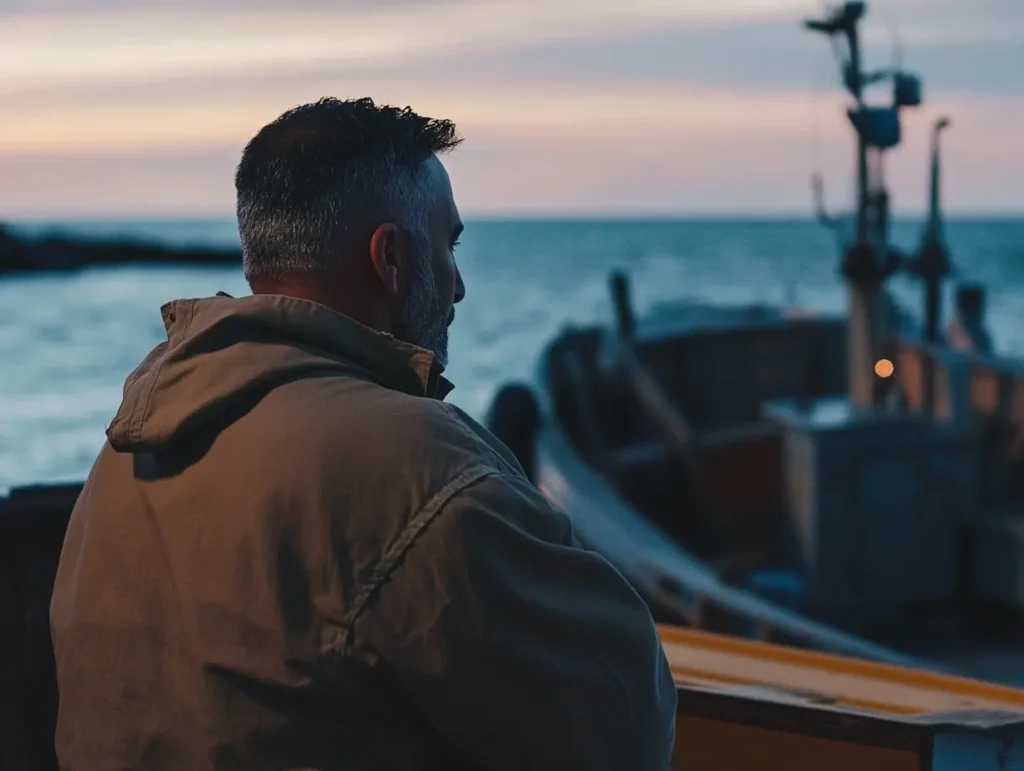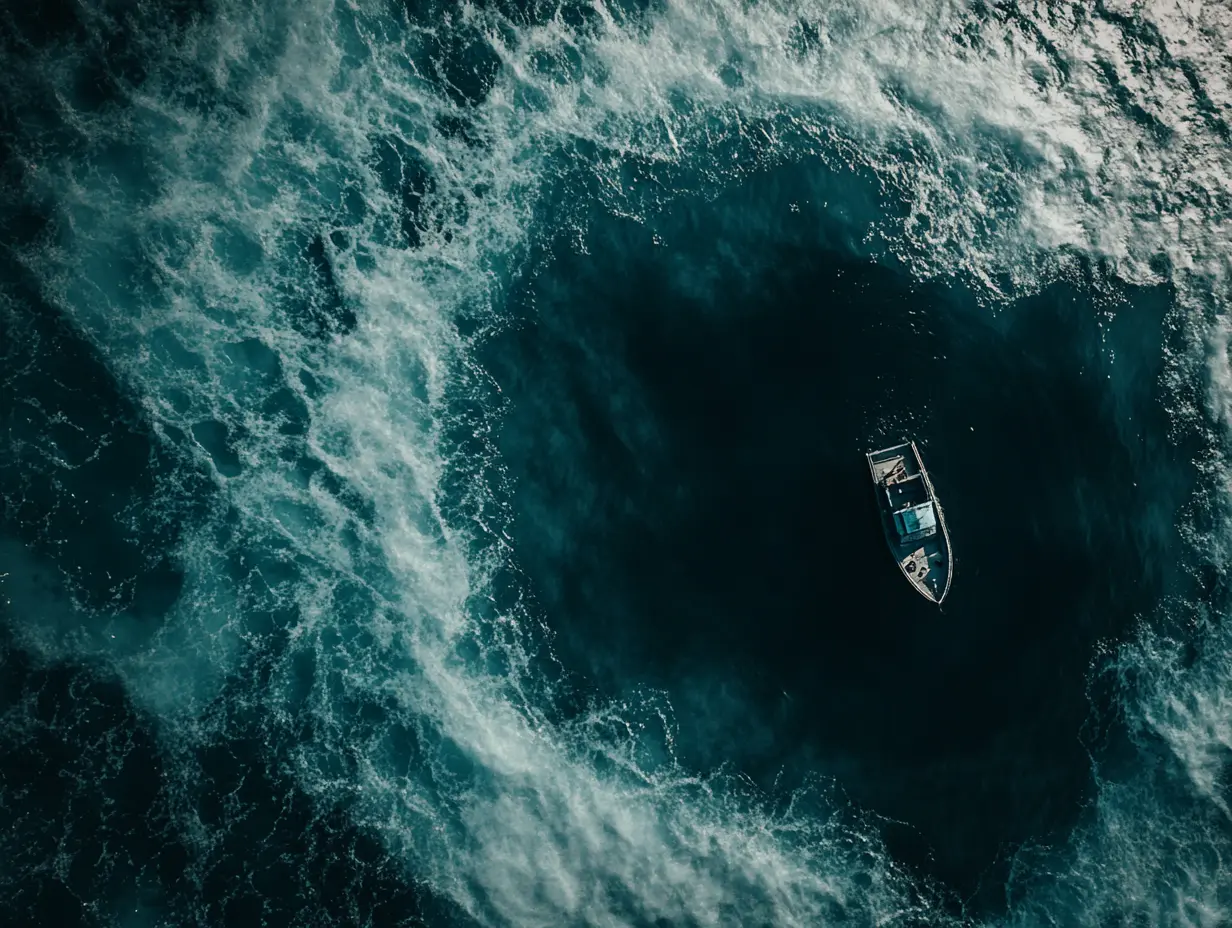The skiff lurched so violently that Erik dropped to his knees, knuckles white against the side railing of the boat as cold spray slapped his face. For a heartbeat the boat seemed to hang on its edge, ready to spill him into the black water. Beneath him, something vast moved with terrifying purpose, the sea heaving in its wake.
Then came the sound; low, steady, unnatural. It thrummed through the wood, into his chest, deeper than any whale’s call. Erik yanked at the starter cord with frantic jerks, but the engine only coughed and died. Another swell rose under him, lifting the skiff high, tilting so far his boots filled with seawater. He was certain this was how it would end.
On the third pull, the motor roared awake. He slammed the throttle wide, the skiff leaping forward across the dark, spray burning his eyes. Behind him the water bulged again, as though something chased just beneath the surface. Erik didn’t look back. He gripped the tiller with shaking hands and drove for the faint lights of the village, convinced each second might be his last.
Erik had been on the water for as long as he could remember. His father had taught him to handle a skiff before he’d even learned to drive, and now, in his thirties, fishing was the only work he trusted to keep food on the table. He wasn’t the wealthiest man in the village, but he was steady, practical, and known for rolling his eyes at drama.
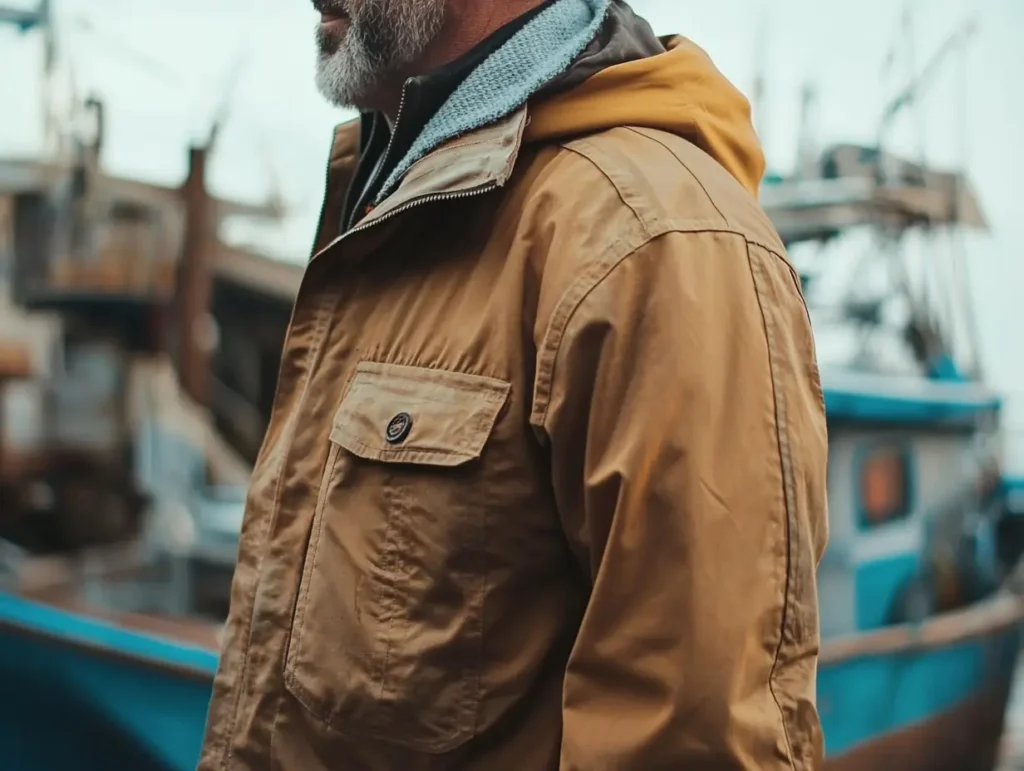
The village itself was small; barely three hundred people living along a weather-beaten coast. Rusting trucks lined the harbor road, boats swayed against their moorings, and the smell of diesel mixed with salt and seaweed. There wasn’t much to do except fish, talk about fishing, or complain about the market price of fish. Which was why the latest rumor had spread so fast.
People swore there was something in the water. Something big enough to upend boats, something that scared fish away and left nets empty. Nobody had seen it clearly, of course; it was always “a shadow” or “a shape” or “something huge under the boat.”
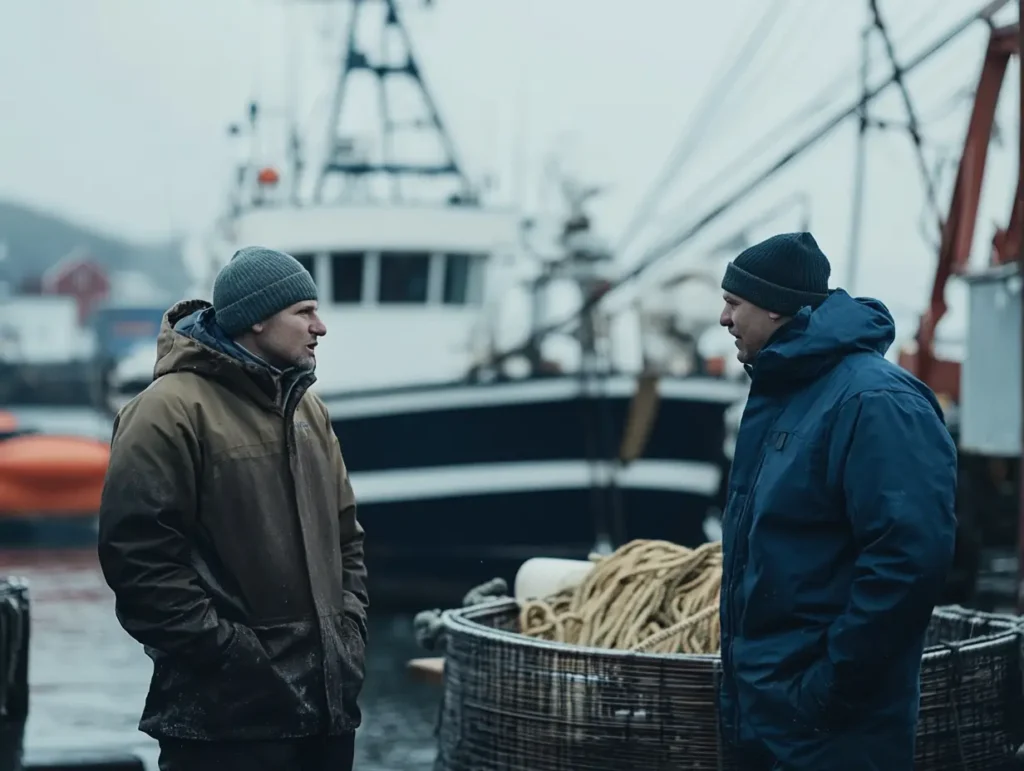
The stories were consistent enough to make the more cautious fishers stay ashore. Fishermen had always been superstitious, and with reason; the sea was dangerous work, and a man who didn’t respect its mysteries often didn’t come back.
Erik wasn’t buying it. “Come on,” he told the guys at the harbor café one morning, sipping cheap coffee from a paper cup. “If there’s no fish, blame overfishing or bad currents, not sea monsters. This isn’t a movie.” A couple of younger deckhands laughed, but the older men just stared at him, unconvinced.
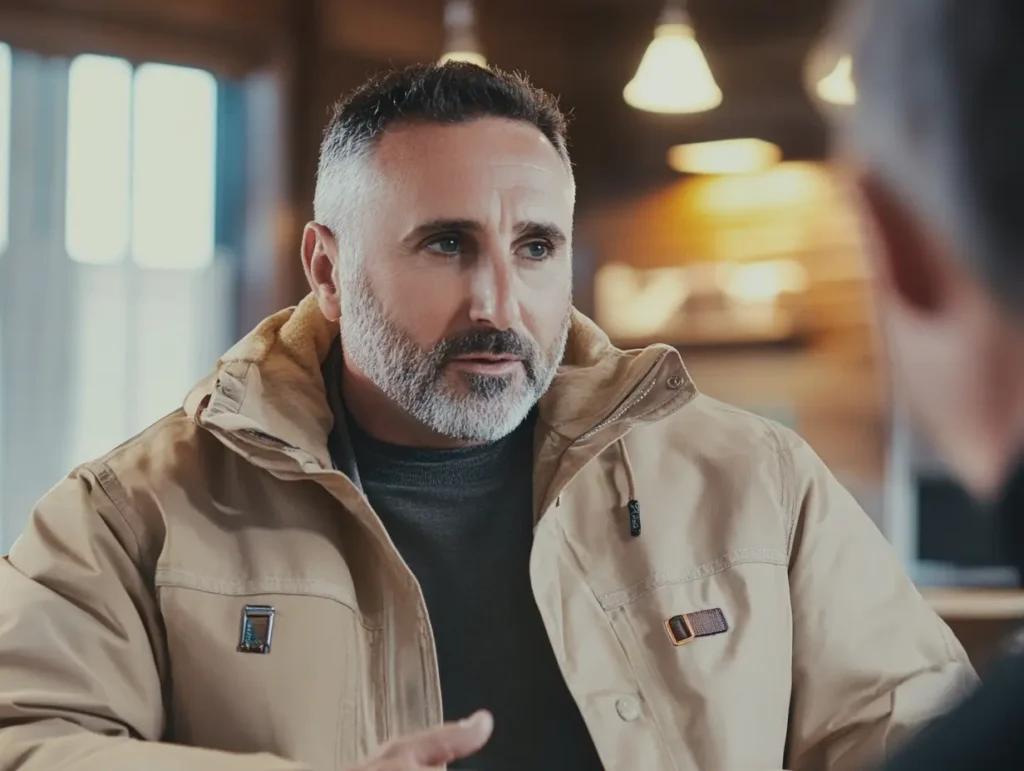
Marta, who ran the fish counter at the local market, shook her head when he stopped by. “Keep laughing, Erik. It’ll be you tipping over next.” She said it with the bluntness of someone who’d seen too many accidents at sea. He smirked, tapped the brim of his cap, and told her to save him a space on the ice table for tomorrow’s catch.
The truth was, his trip that morning had been fine. More than fine, his bins were full before noon. He’d steered back into the harbor sunburned and grinning, calling out to anyone listening: “Looks like the monster forgot to eat me!” A couple of teenagers clapped sarcastically, but most people just looked away. The mood onshore was too heavy for jokes.
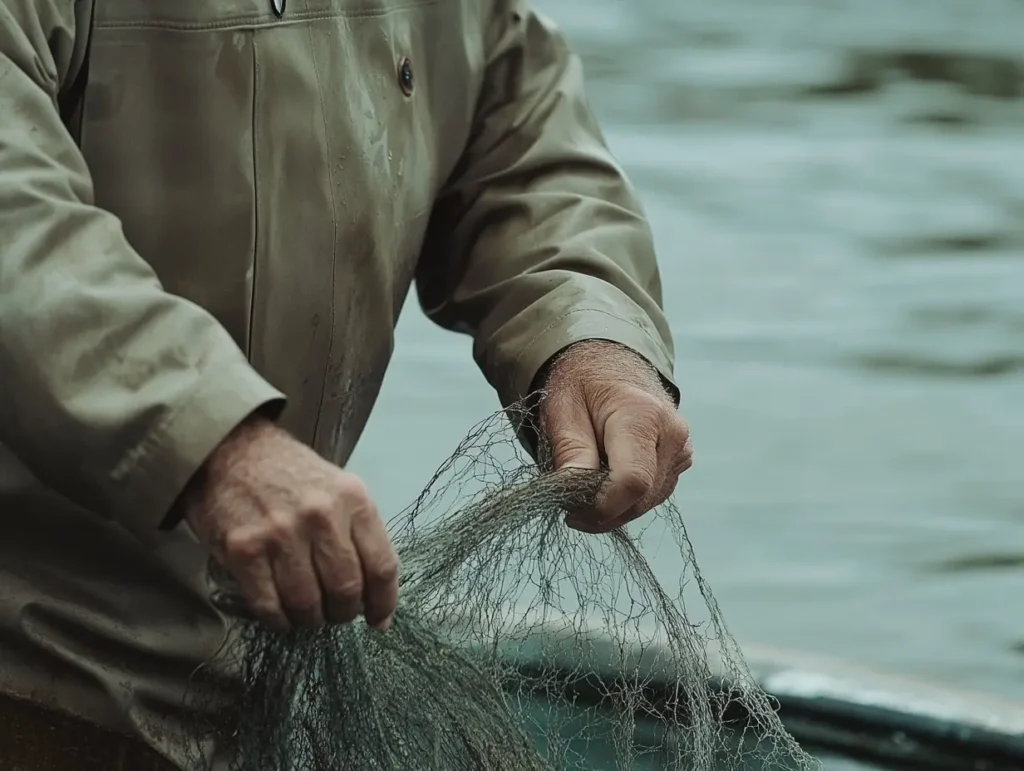
“It doesn’t show up during the day,” Marta muttered later, when he passed her stall again. “It comes when the church bell rings at night. That’s when Tomas lost his gear. That’s when Anders said he felt something pull at his oar.”
Erik rolled his eyes but felt a twinge of unease. Not because he believed her, but because of how carefully she’d said it, like the sea itself might be listening. Pride wouldn’t let him leave it there. And besides, if everyone else was too afraid to fish at dusk, then he’d have the waters to himself. Fewer boats meant less competition, maybe fuller nets.

His father had died in a storm years ago, and Erik had grown up knowing that the sea didn’t need legends to kill you. But he also knew how to handle himself: how to keep a boat steady in chop, how to read a dark patch of water before it broke into a wave. He trusted skill, not stories.
So when dusk came, he untied his skiff. The church bell rang out over the village, deep and heavy. Most people shut their doors. Erik just adjusted the strap of his life vest, flicked on his running light, and pushed off. The outboard coughed once, then steadied, carrying him out into open water.
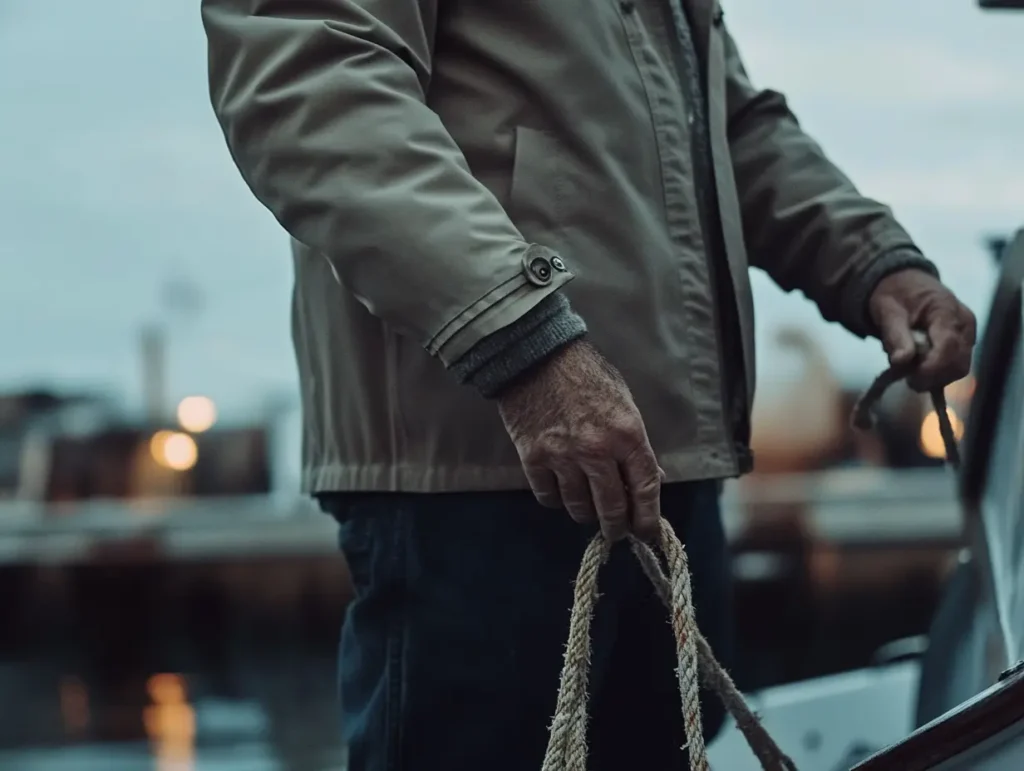
The sea felt strange. No gulls circled. The surface looked stretched flat, almost artificial, the way a pond goes still before someone throws a rock. He eased back on the throttle, letting the engine settle into a low hum. The silence pressed harder with every yard he drifted.
He killed the engine over the shelf where the current usually brought in herring. His lamp lit a pale circle of water, plankton flashing like static. The nets hung slack. Nothing moved. Then the skiff jolted. Not from chop, but from something that touched the boat everywhere at once; the hull, the motor, even his boots.
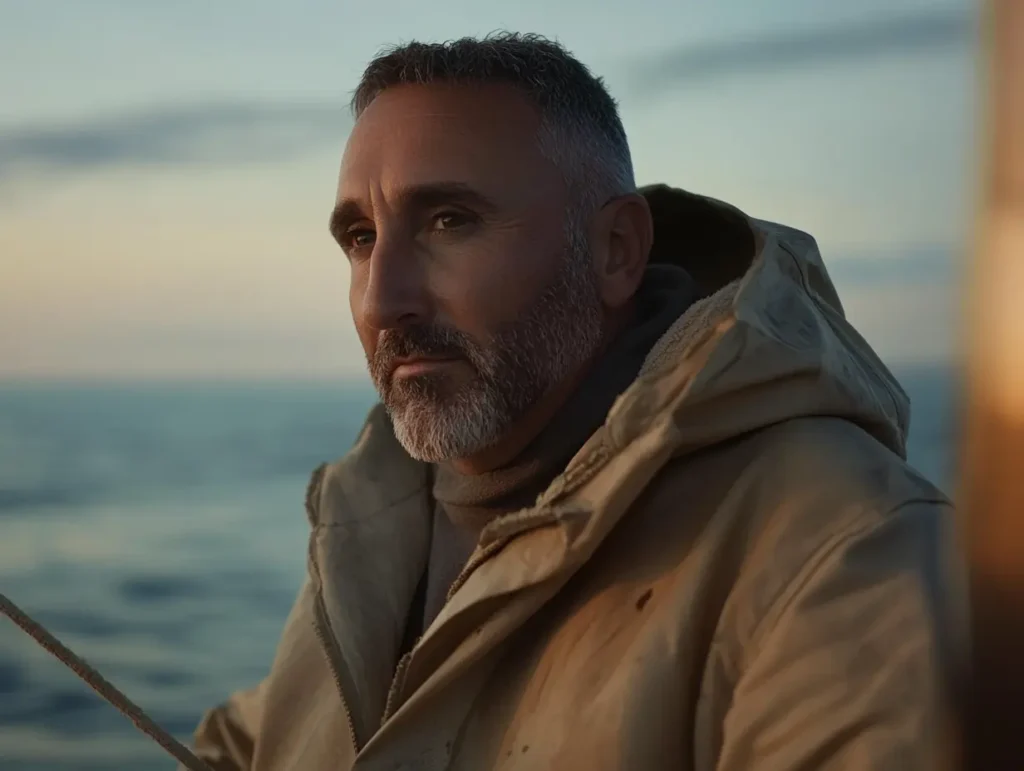
A low vibration ran through the wood and into his bones. He braced, crouched low, and leaned over the side. A massive shadow streaked beneath him. It was too clean, too precise, not the bulk of a whale or the flutter of a ray.
The skiff lurched sideways, water piling up in a swell that had no wind behind it. For one terrifying second he thought he was going over. Then the boat slammed back down, rattling, and the water was smooth again.
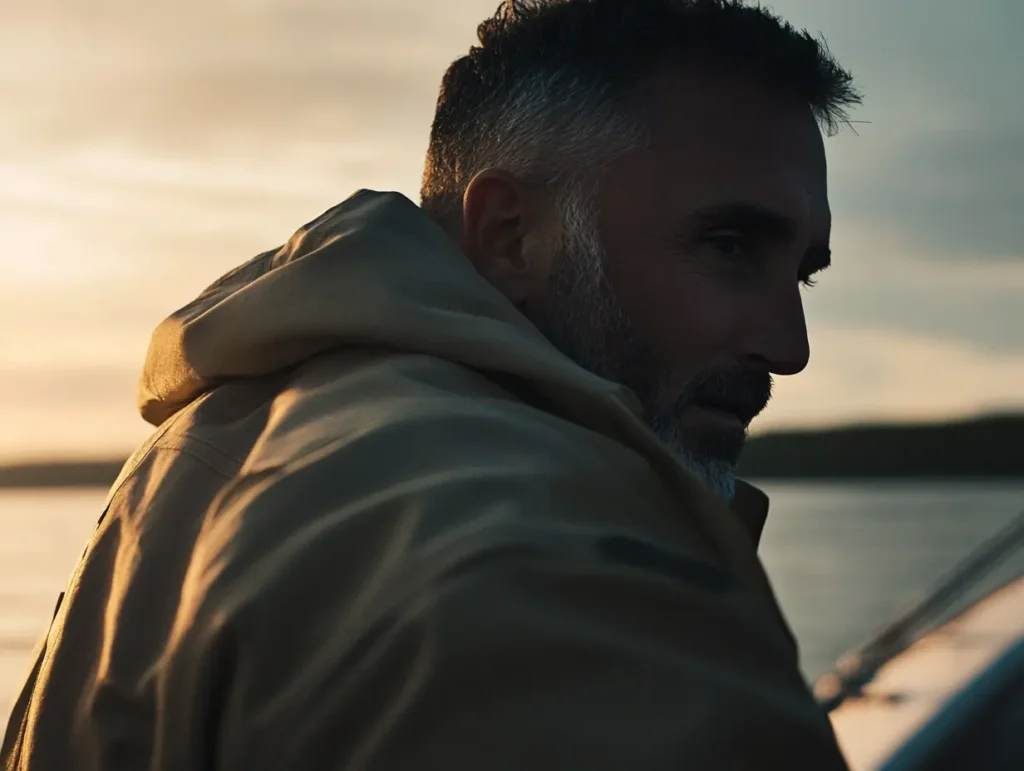
The shadow streaked beneath the skiff, and in an instant the world tilted. The boat lurched violently, one side lifting as if unseen hands were prying it over. Erik dropped to his knees, grabbing the side of the boat with both hands, fighting to shift his weight. Cold spray lashed his face. For a moment, he was certain he was going in.
“Stay upright,” he muttered through clenched teeth, though the words came out more like a prayer than an order. The hull shuddered again, harder this time, and the lantern rattled from its hook, swinging crazily. He lunged for the tiller, but the outboard had sputtered to silence, leaving him adrift and helpless.
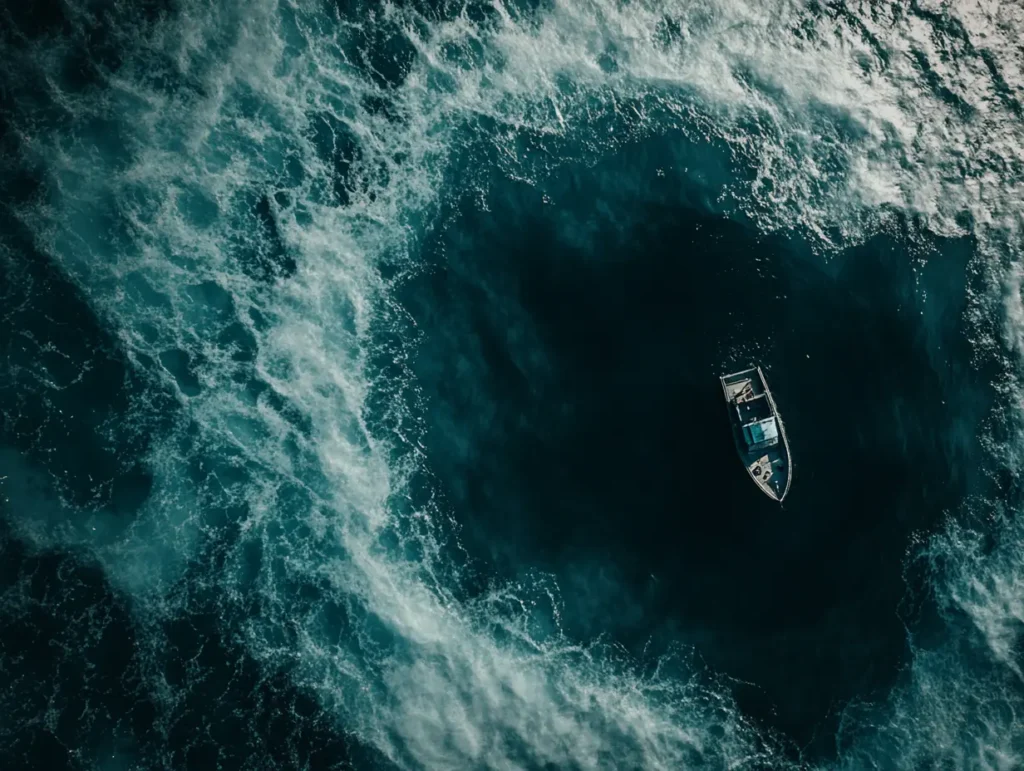
Panic clawed through him. He yanked the starter cord, once, twice, three times, each pull tearing at his shoulder. The motor coughed, caught for a second, then died. He glanced over the side, half-expecting teeth or a breaching mass of flesh, but there was only the black sheen of water and the faint trace of a bulge moving beneath.
“Come on, come on,” he hissed, jerking the cord again. The skiff rocked violently as another swell rose beneath it, no wind, no reason, just something huge shifting in the depths. The boat rolled so far that seawater sloshed over the side, soaking his boots. His heart slammed in his chest. If it tipped, he was finished.
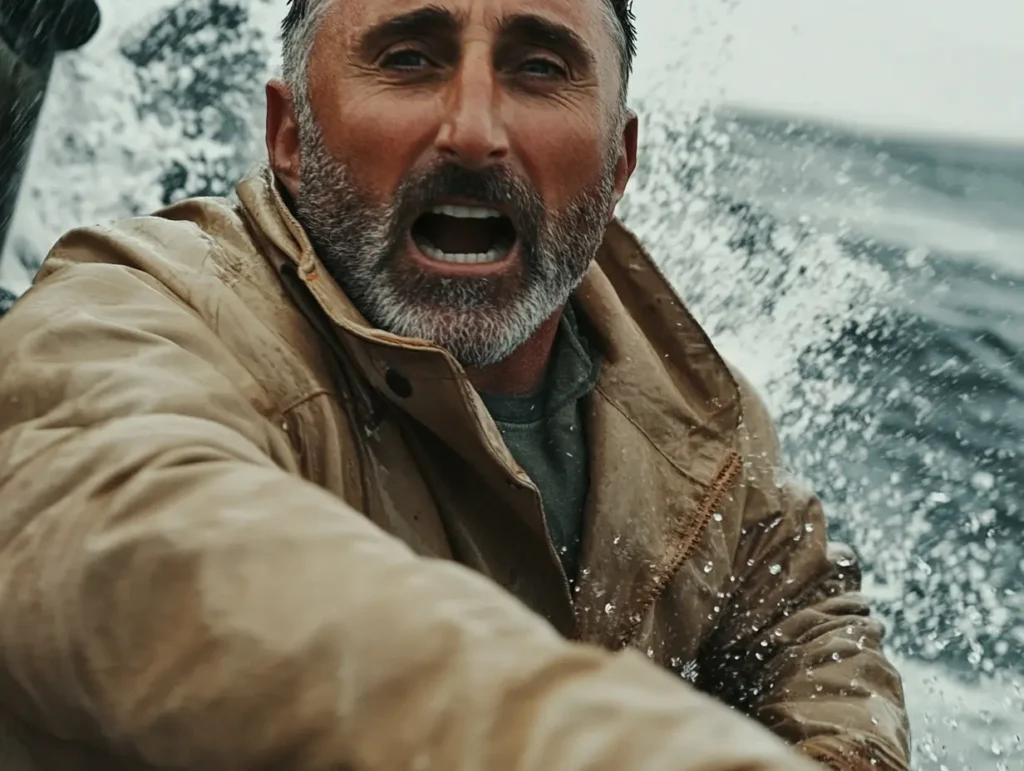
At last, the engine caught. With a deafening roar, it rattled back to life, sending vibrations through the hull. Erik slammed the throttle open, and the skiff leapt forward, bow cutting into the dark. Behind him, the water rose once more, a swell curling unnaturally, as though something followed just beneath the surface. He didn’t dare look back.
The lights of the village flickered on the horizon. His hands ached from gripping the tiller to steer the boat so hard, and every jolt of the skiff felt like the beginning of another strike. He kept the throttle pinned, the engine screaming, the little boat shaking as though it might rattle apart.
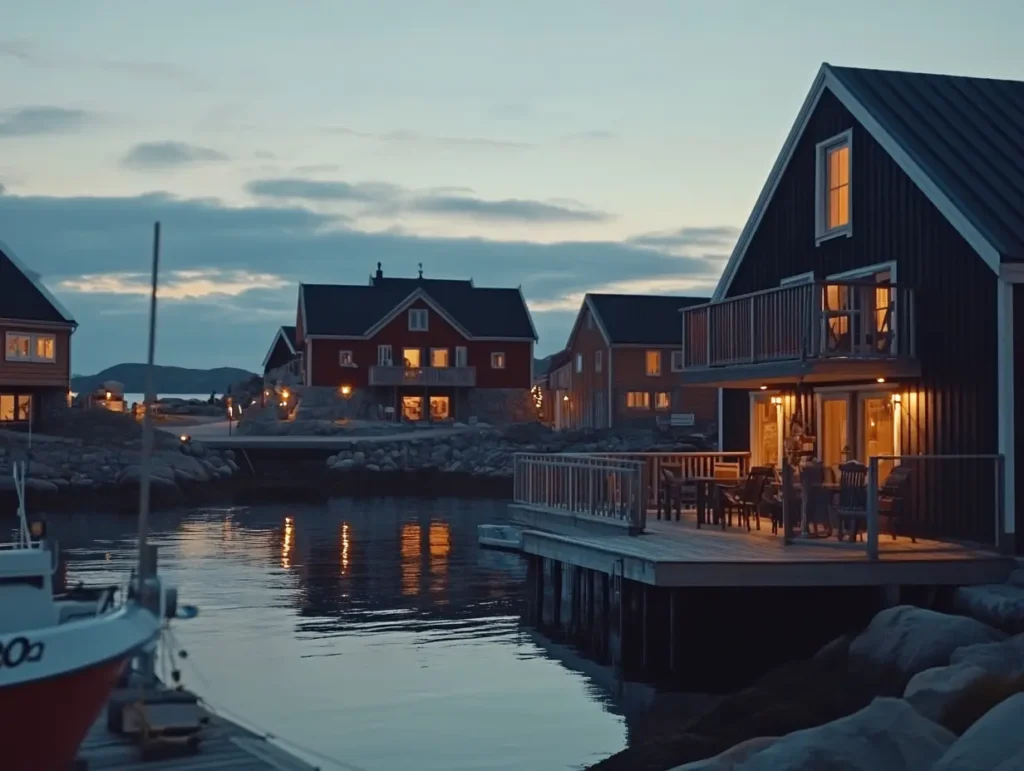
The pier loomed closer, but Erik didn’t slow down. He cut the motor only when the shallows surged beneath him, coasting hard until the hull ground against the beach. He didn’t bother tying the boat off. He vaulted over the side, stumbled in the wet sand, and sprinted up the beach.
Only when his legs gave out did he collapse, face-first in the grit, lungs heaving like bellows. He rolled onto his back, staring up at the night sky, salt stinging his eyes. His body trembled uncontrollably, adrenaline still burning in his veins.
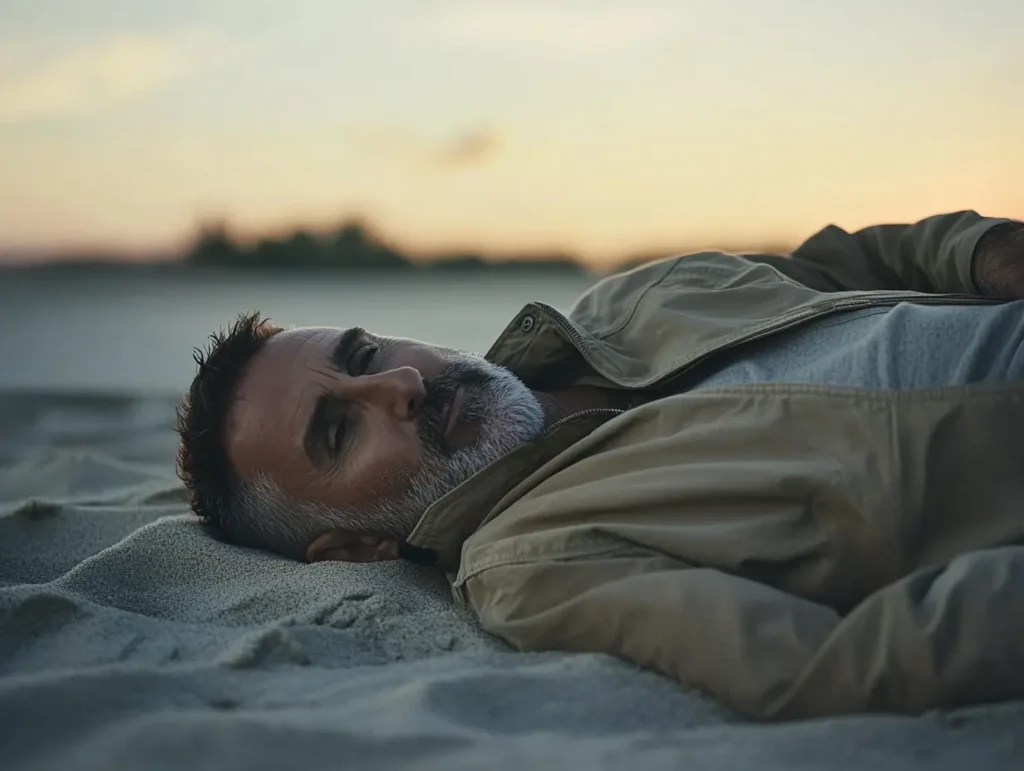
The sea was quiet behind him, deceptively calm. No shadow, no wake, nothing to prove what he’d just lived through. If anyone had watched, they’d think he was drunk, staggering from his boat and falling like a fool. But Erik knew what he’d felt. Something vast had passed beneath him, and for a moment, it had tried to take him.
As he lay in the sand, his mind reeled. What had he seen? It hadn’t moved like any whale he’d known, and no storm created swells that deliberate, that strong. His chest still hummed with the deep vibration that had throbbed through the hull, a sound so steady it might have been the breath of something alive.
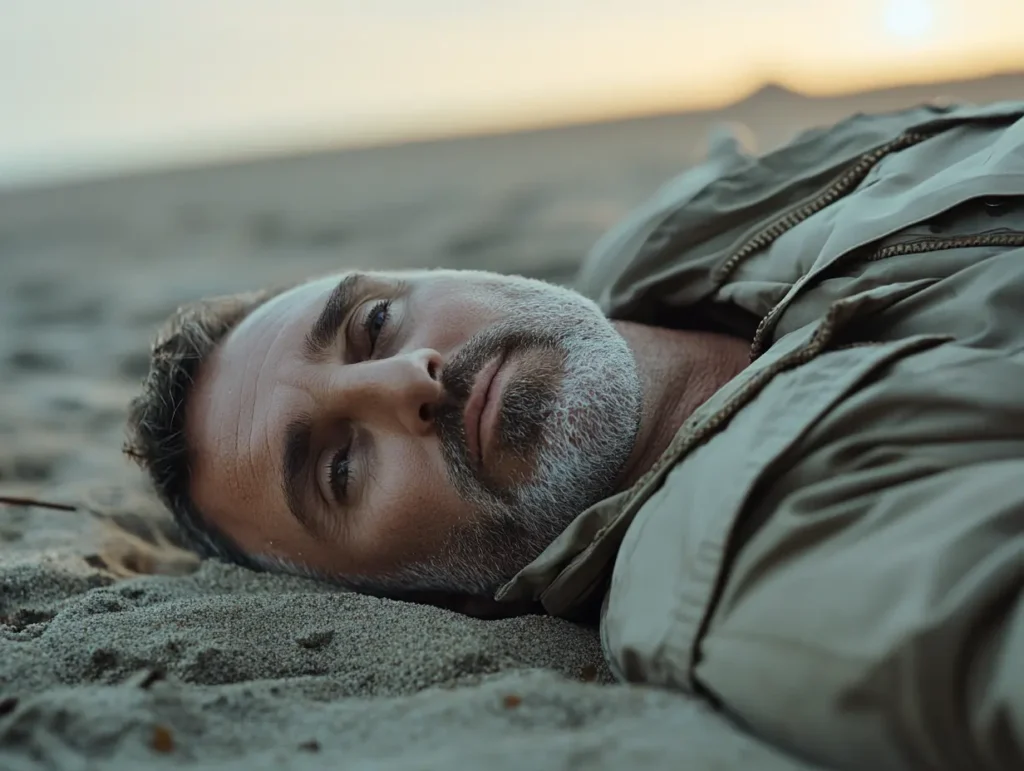
He told himself it was gone, yet his eyes stayed locked on the horizon, waiting for the sea to rise again. For a long while he lay there, sand sticking to his wet clothes, chest heaving, ears still buzzing with that low hum that refused to fade.
He didn’t trust the water behind him, not even when it stilled. Every few seconds he jerked his head toward the horizon, half-expecting the water to rise again. The adrenaline drained slowly, leaving him shivering.
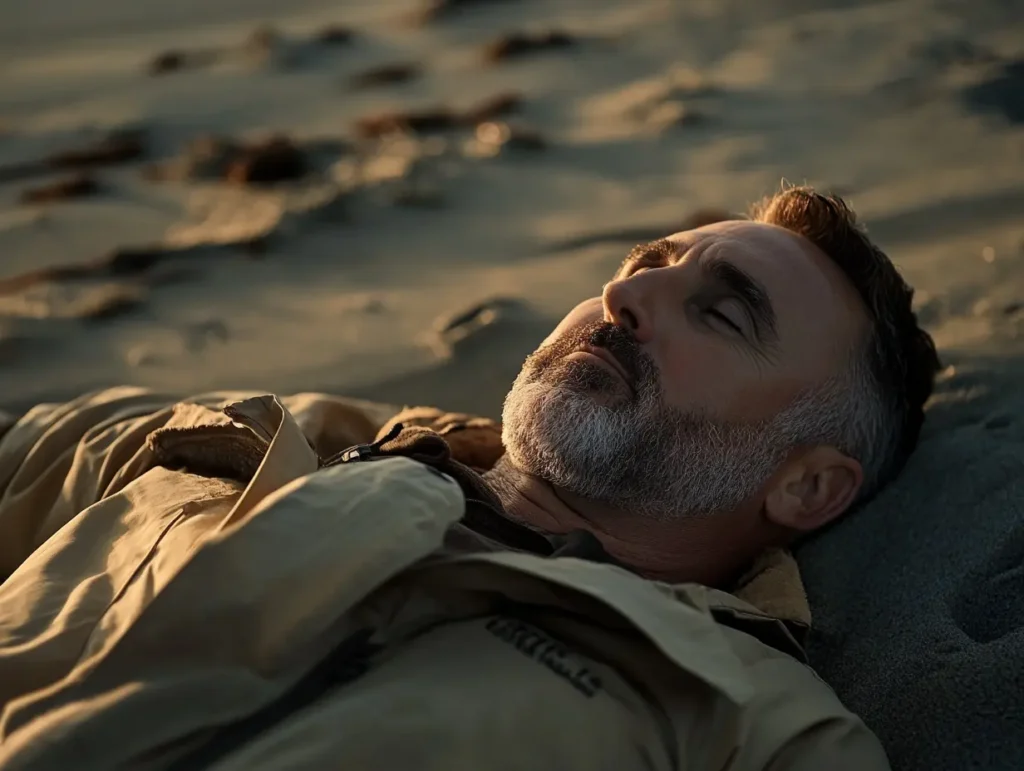
His palms still smelled faintly of oil, the kind you wiped from a bilge pump or an engine block. He rubbed them against the sand, trying to scrub it away, but the metallic tang lingered. It made no sense. The sea didn’t smell like that.
Eventually, the cold forced him up. His legs shook, clumsy beneath him, and he staggered through the tide line until he reached the road. Ahead, the village glowed with lamplight, a scattering of windows alive in the darkness. He wanted to slip home unnoticed, crawl into bed, and tell no one. But in a place this small, someone always saw.
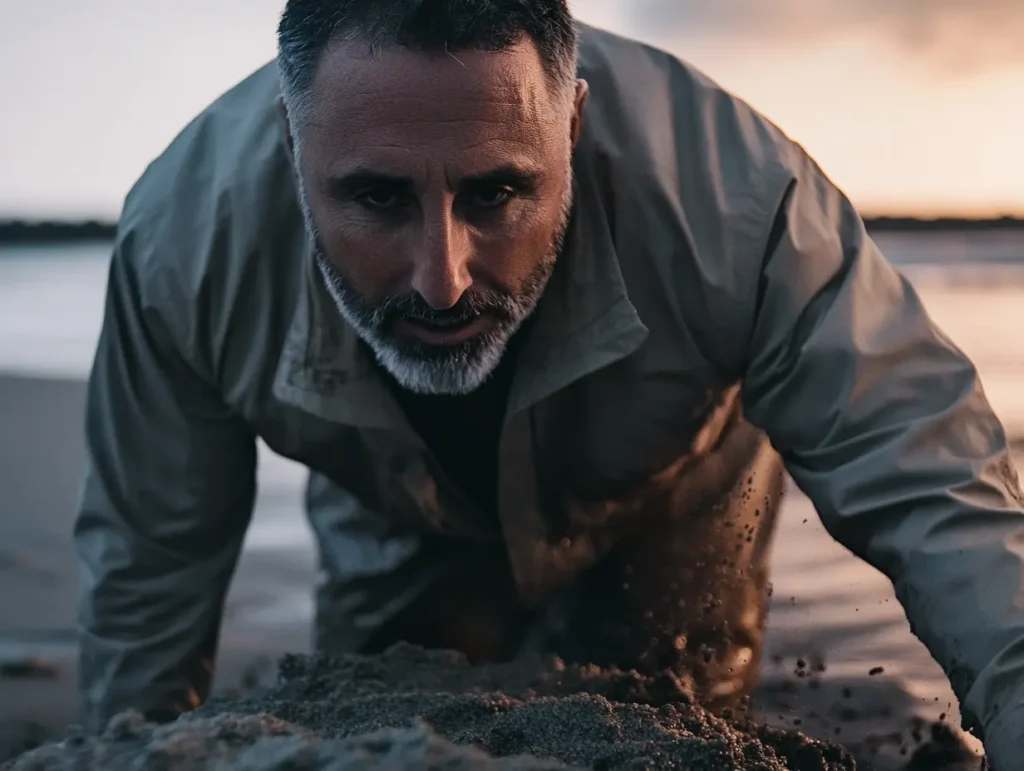
By the time he reached the first row of houses, faces were already peering from doorways. Voices carried over the salt air, low and amused. A pair of teenagers leaned on the rail outside the café, grinning wide. “There he is,” one of them called. “The monster chased him home!”
Laughter followed, quick and sharp. Erik kept his head down, but his wet boots slapped too loudly against the pavement, giving him away. More doors opened. The sound of gossip traveled faster than the tide.
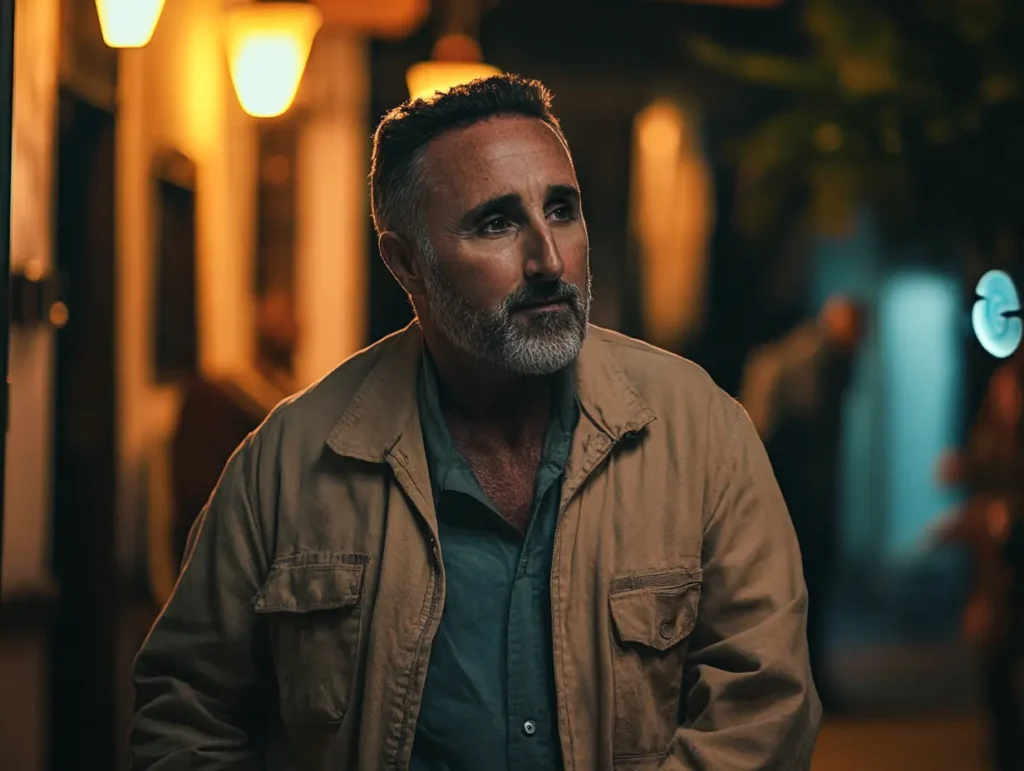
Marta stepped out from her porch, hands planted on her hips, apron still damp from work. “What did I tell you?” she called across the street. “The sea doesn’t lie. You mocked us, Erik, and now you’ve had your lesson.”
“I didn’t see anything,” he said, too quickly. His voice cracked, betraying him. “Just a swell. Nearly tipped me, that’s all.” That only drew more laughter. Someone muttered, “A swell that makes a grown man crawl onto the beach like a half-drowned pup.”
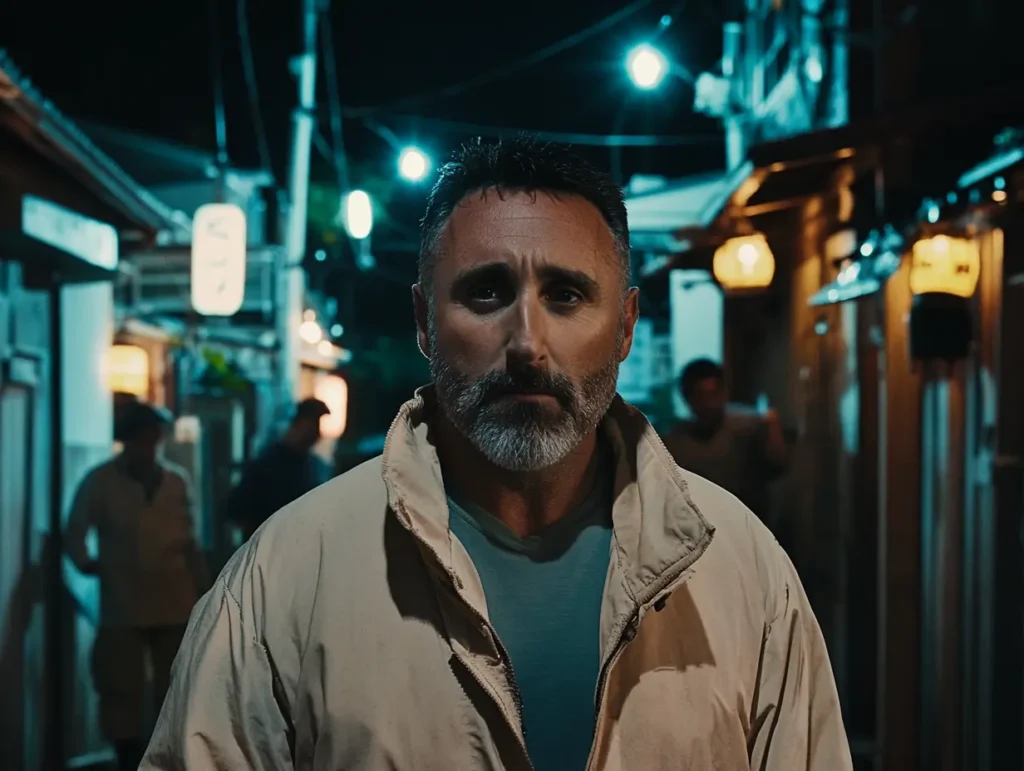
Erik clenched his jaw and pushed past them, forcing his body to look steady even though his legs trembled with every step. The weight of their eyes followed him all the way to the café, where the smell of stale coffee and fried fish clung to the walls.
He slipped into a chair, trying to make it look casual, though his hands still trembled when he reached for the mug on the counter. The men inside leaned forward, eager for his story. “So,” one said, “did you meet our monster?” A ripple of laughter rolled through the room.
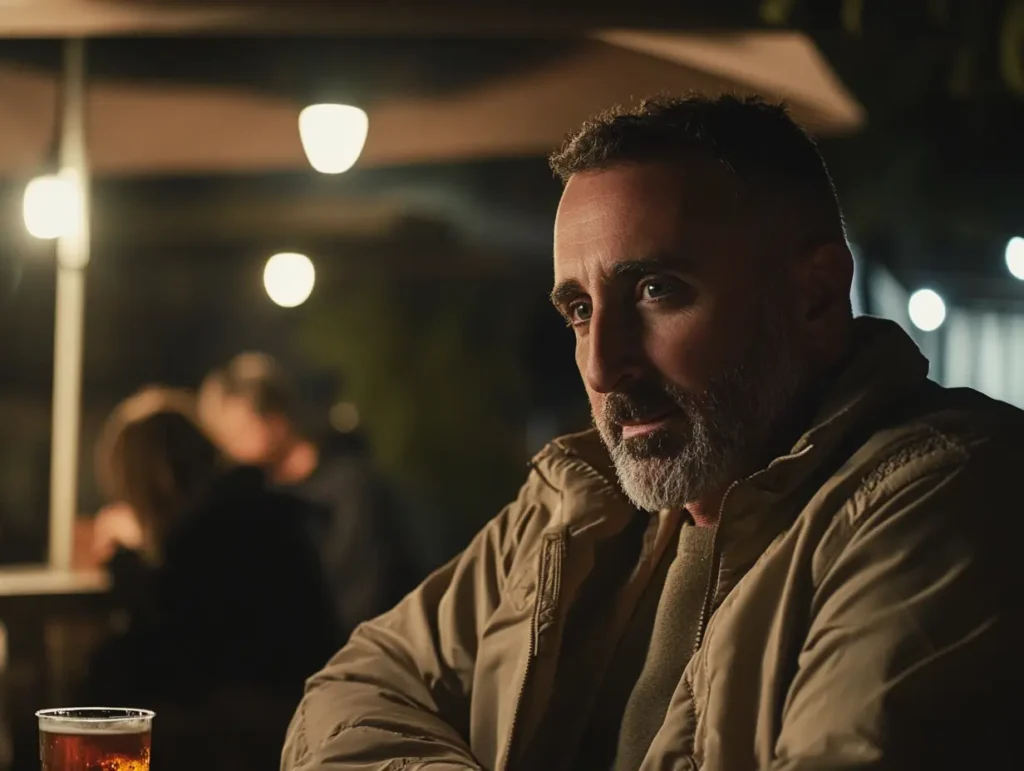
Erik forced a smirk. “The only thing out there tonight was empty water,” he lied. “You all hear what you want to hear.” Marta’s eyes narrowed. “Funny,” she said, “how empty water leaves a man white as chalk.”
He ignored her, gulped his coffee, and left the café after only a few minutes. Outside, the night was colder still. He walked the narrow road back to his house, shoulders stiff, replaying the encounter over and over in his mind. That shadow, so straight, so deliberate. That swell, rising with precision instead of chaos. And above all, that hum.
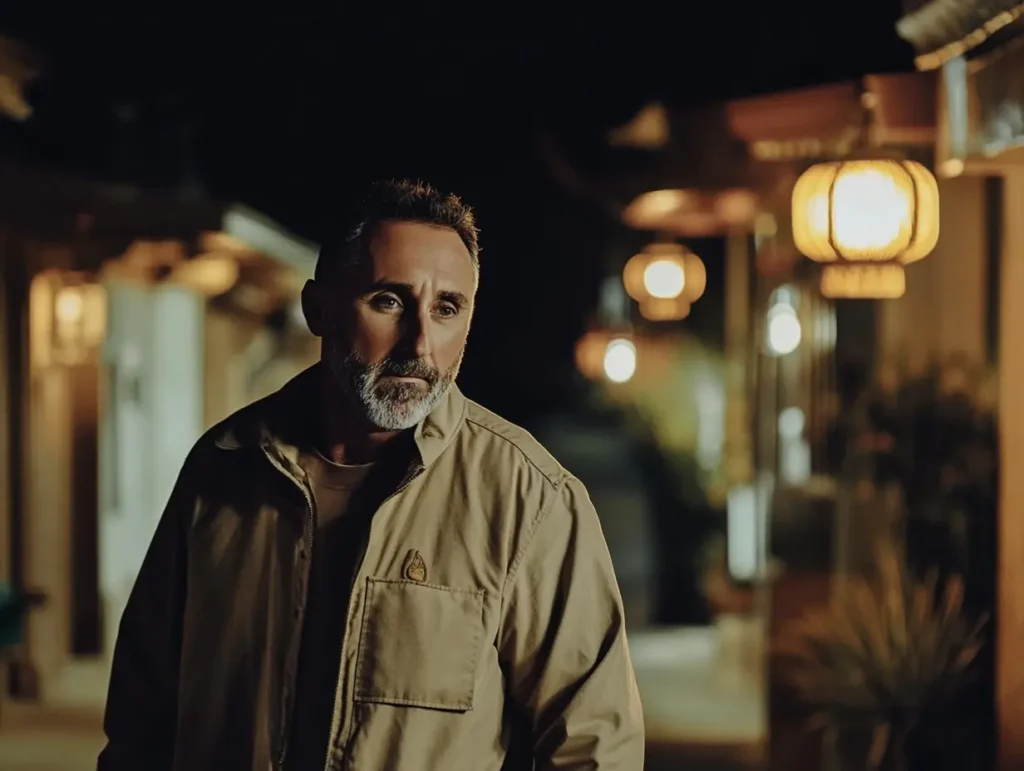
It hadn’t been a song like whales made, no rise and fall, no haunting notes that bent and stretched. It had been flat, unwavering, like something grinding deep in the earth. At the time he’d told himself it was breath, some massive animal pushing air through its body, but the more he thought on it, the less it fit. No creature moved with such regularity.
He slept badly. Every time he closed his eyes, he felt the skiff tip again, felt the swell of black water lift him, heard the engine sputter and fail. He woke gasping, convinced the shadow had returned, only to find the night quiet.
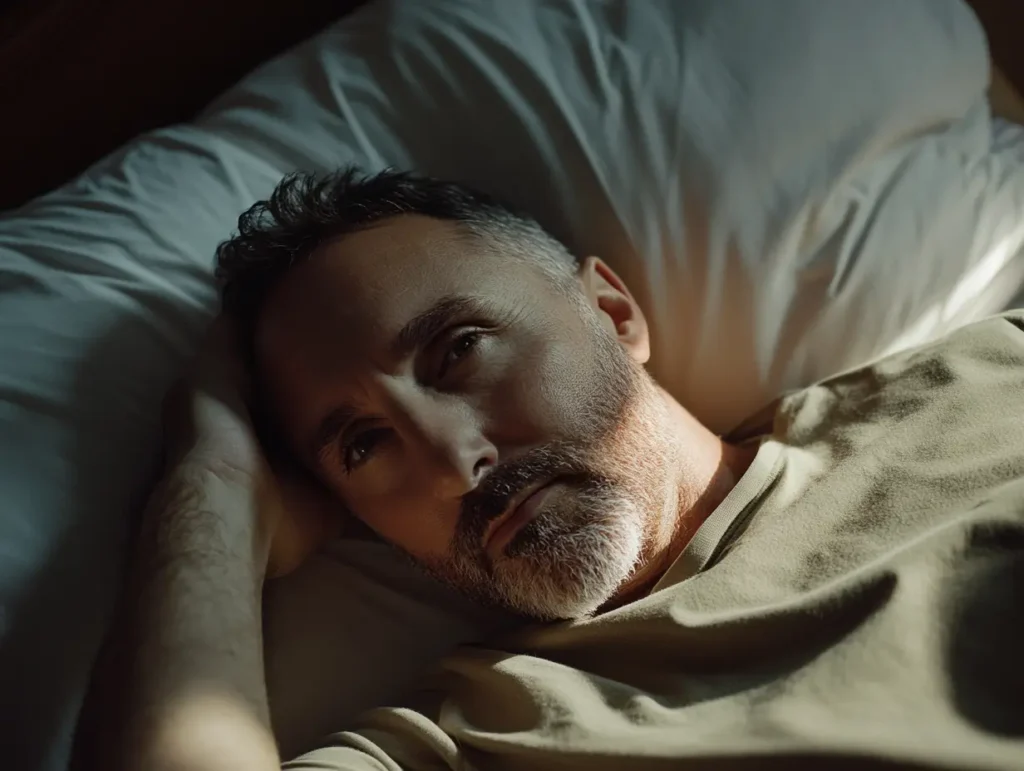
The next morning, Erik walked down to the dock. His skiff sat low in the water, rocking gently with the tide. As he crouched to check his gear, something caught his eye, a thin sheen spreading across the surface, rainbowed in the sunlight. It drifted out from beneath the hull, shifting with the current.
He touched it with his fingertips and lifted them to his nose. The smell was sharp, oily, faintly metallic. Not the sea he knew. His stomach tightened. If the others saw it, they’d claim the monster left some poison in its wake. He could already hear Marta twisting it into another story.
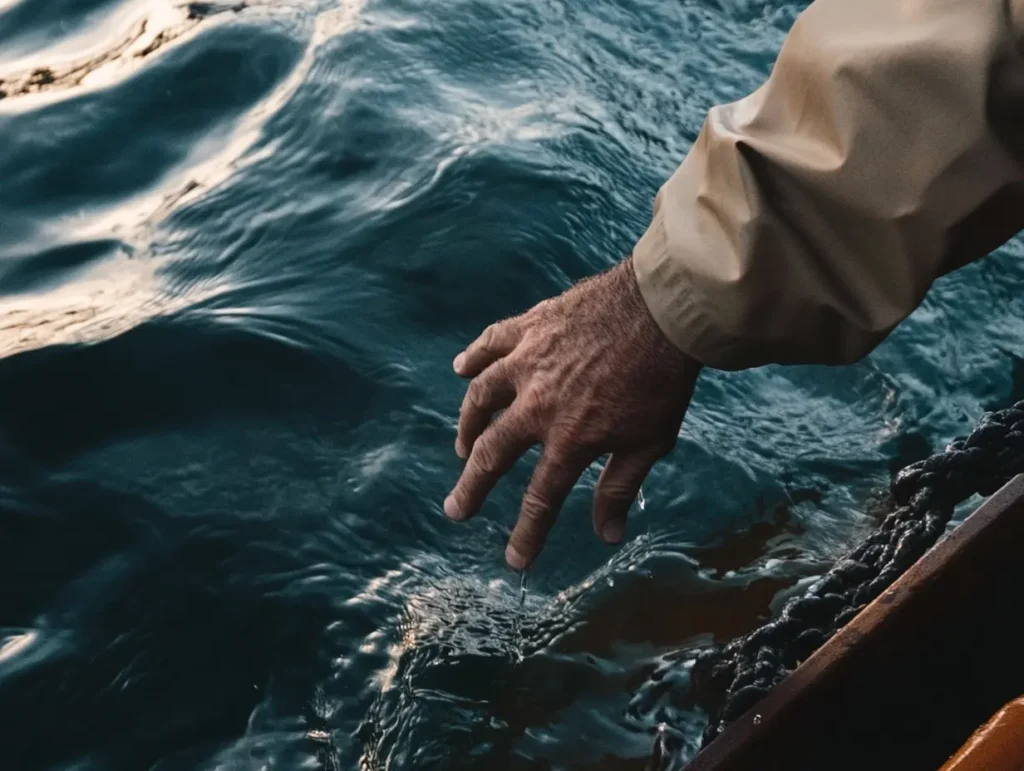
But Erik wasn’t so sure. No fish, no storm, no living thing left a trace like this. He glanced out across the bay, its surface calm and silver in the morning light. Harmless on the outside, yet he couldn’t shake the feeling that something waited beneath, watching, biding its time. By noon, the village was buzzing again.
A boy swore he’d seen ripples moving unnaturally fast near the breakwater, like something long and dark had darted past. A fisherman claimed his traps had been emptied overnight, another insisted the gulls had vanished because they sensed the beast.
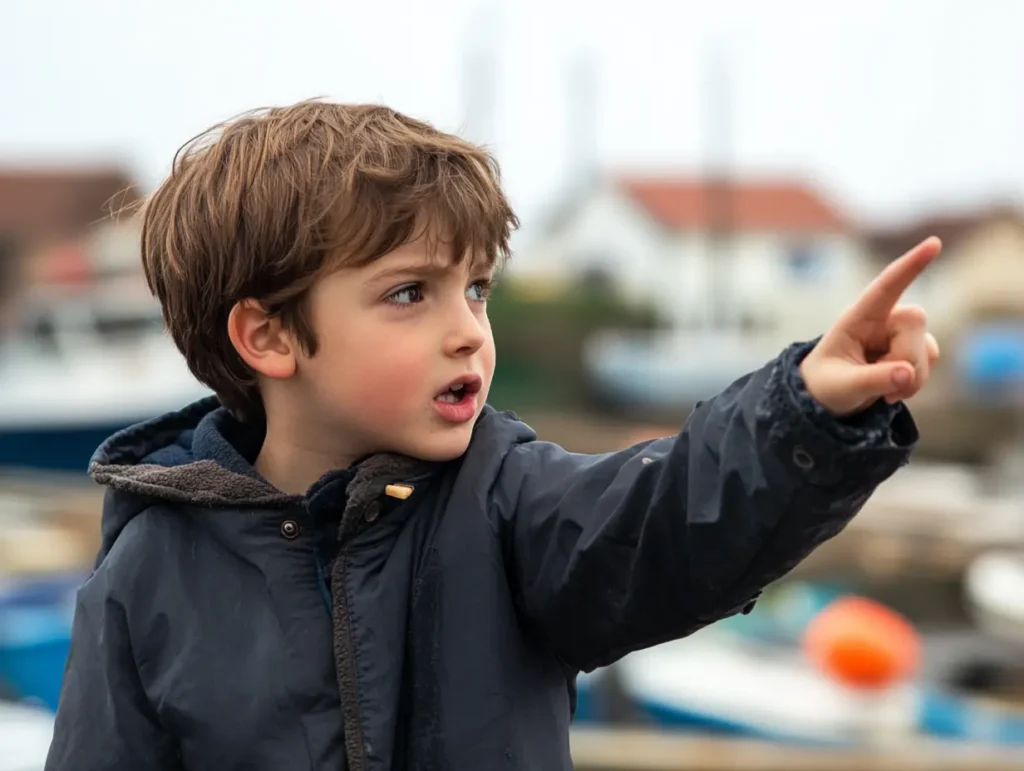
Fear turned quickly into ritual. Salt was scattered on doorsteps. Charms hung from windows. Some swore they wouldn’t take their boats out again until the “curse” had passed. Erik listened, jaw tight, and said nothing.
To argue would only make him a bigger fool in their eyes. They already believed he’d seen the monster, whether he admitted it or not. To them, his stumble on the beach was proof enough. But the truth was worse than mockery.

The truth was he didn’t know what he’d seen. He didn’t know what had passed under him, only that it hadn’t moved like a whale or shark, and that no storm could summon swells like that. His pride told him it wasn’t a monster. His gut told him it wasn’t natural either.
That hum. That oily smell. Those were his clues. Thin, fragile, but enough to keep him awake at night, staring at the ceiling, replaying it all. Something out there was real, something built, something that didn’t belong. And Erik was the only one in the village who cared to find out what.
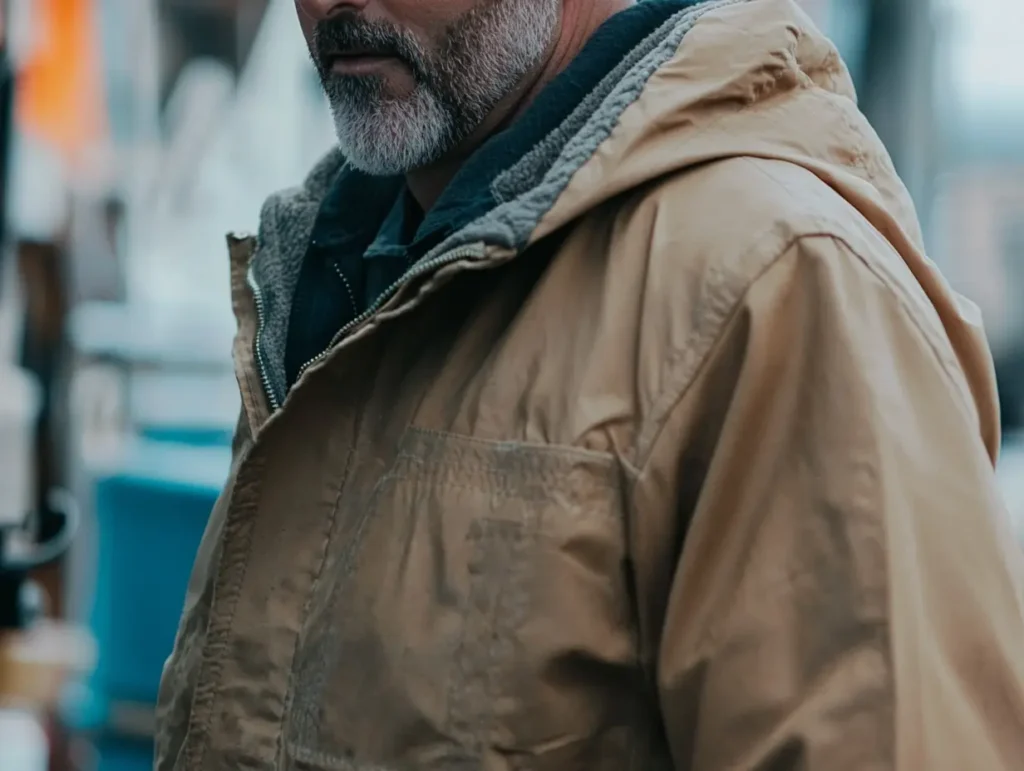
The village carried on as though Erik’s stumble on the beach had confirmed everything. They whispered more openly now, confident the monster had shown itself. The men who once fished every tide started refusing to launch at dusk. Some wouldn’t even go at dawn, muttering about curses that clung to the water.
Marta salted her doorstep. Others hung charms of driftwood and rope knots, little talismans against whatever lurked below. By midweek, fewer boats were leaving the harbor at all. Nets hung limp on the docks, drying uselessly in the sun.
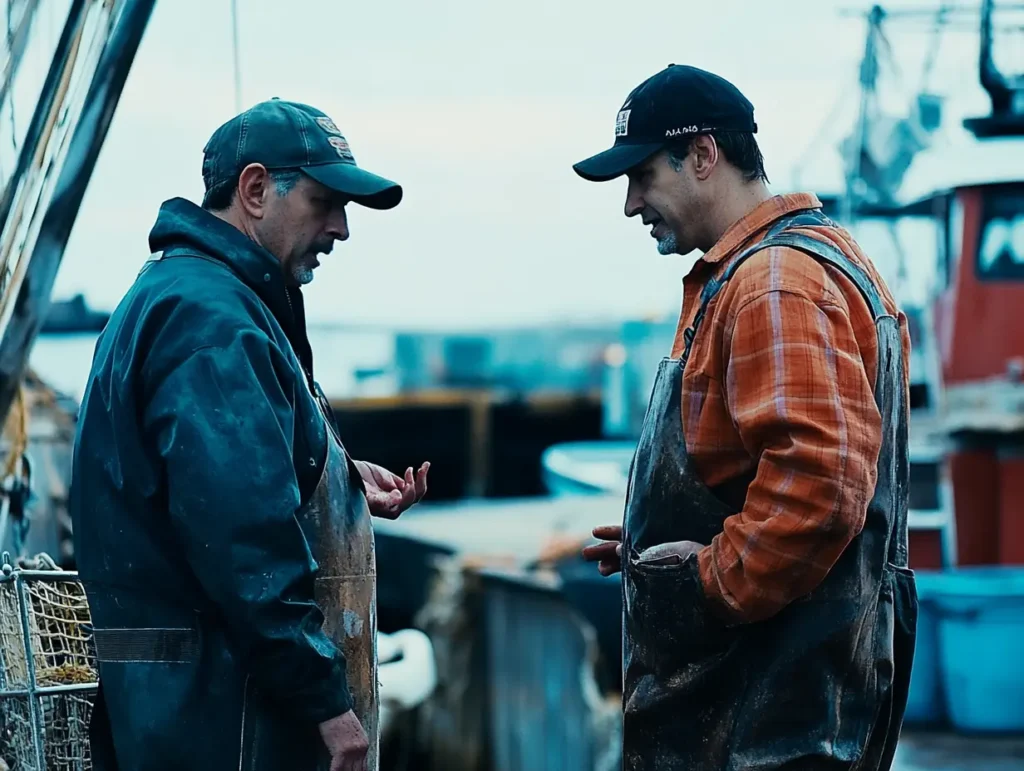
Erik tried to scoff at their superstitions, even force a laugh, but it rang hollow. Because the truth was, he couldn’t stop thinking about that night. Not the panic, not even the jeers that had followed—those faded. What stayed with him was the sound.
That low hum still haunted his chest, steady as if something vast had been breathing beneath him. At the time, he’d told himself it was natural, the groan of some great body forcing water aside. But the more he replayed it, the more wrong it felt. Too even.
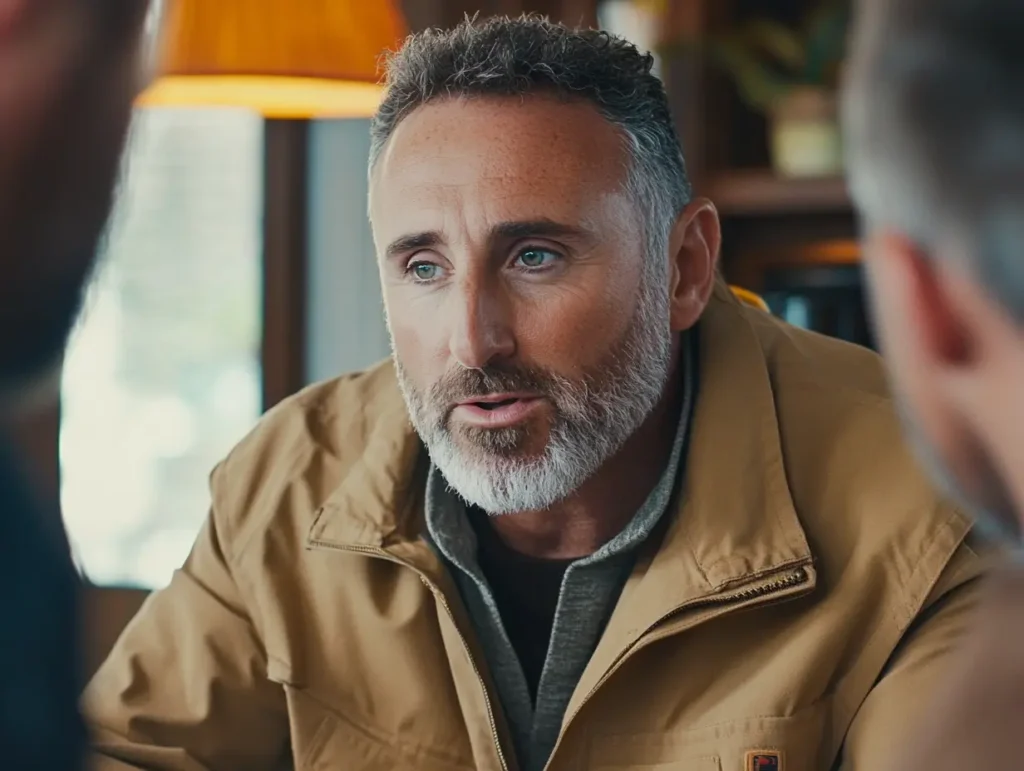
And then there was the water itself. The morning after, the sea near the shelf had looked wrong: slick in places, with faint rainbow sheens that spread in the current. He’d seen oil on water before, from leaky engines or careless refueling, but this was different. Larger, stretched thin like a film. The gulls wouldn’t land near it.
He didn’t tell the others. To them, it would only be another mark of the beast. Better to stay quiet. Still, he couldn’t leave it alone. He found himself walking the cliffs in the evenings, staring out across the bay where the shelf dropped away to deep water. He swore he could feel it beneath him, moving unseen.
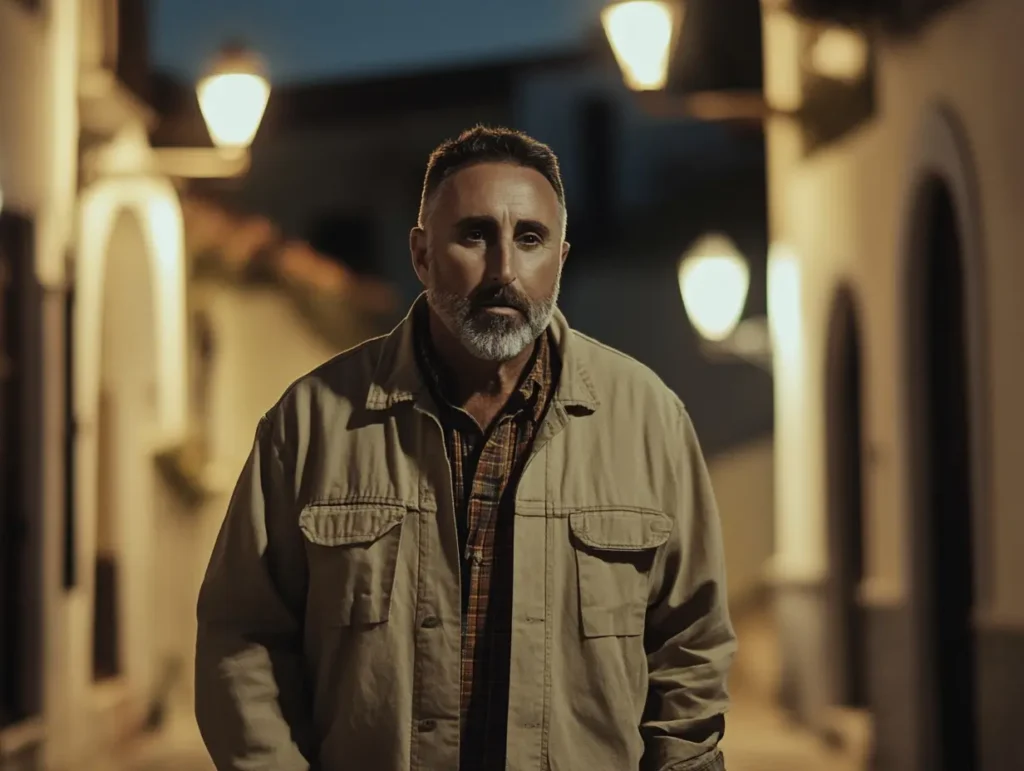
One night, standing on the rocks, he caught something strange. A line of bubbles broke the surface, neat and evenly spaced, running in a perfect line for a dozen meters before vanishing. He held his breath, eyes locked. Bubbles didn’t rise like that unless something was down there, exhaling, venting. But what creature breathed in straight lines?
The villagers noticed his wandering. More than once, Marta caught him lingering near the breakwater after dusk and scolded him for tempting fate. “You’ll be the first it takes if you keep calling it to you,” she warned. He said nothing. The truth was harder to explain, he didn’t believe in their monster, but he couldn’t deny something was there.
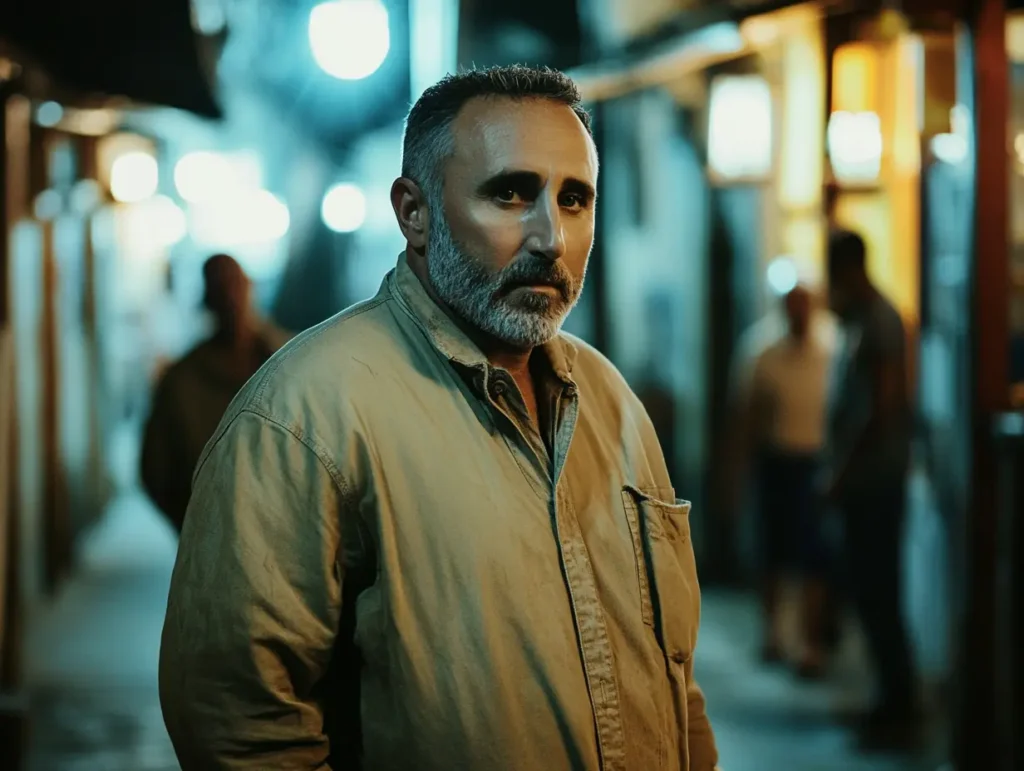
As the days passed, tension thickened. Nets came back empty more often than not. Some said the fish had been driven off. Others swore they’d seen shadows too large to belong to any shoal. A few younger men suggested moving the boats farther north until it passed, but the older fishers refused. “The sea is ours,” one growled. “It’s this thing that doesn’t belong.”
Erik became methodical. Each evening, while the others stayed inside, he sat by the cliffs or walked the shore with his notebook in hand. At first, it was only instinct; he felt the hum at certain times, saw ripples when the bay should have been calm. But soon patterns emerged.
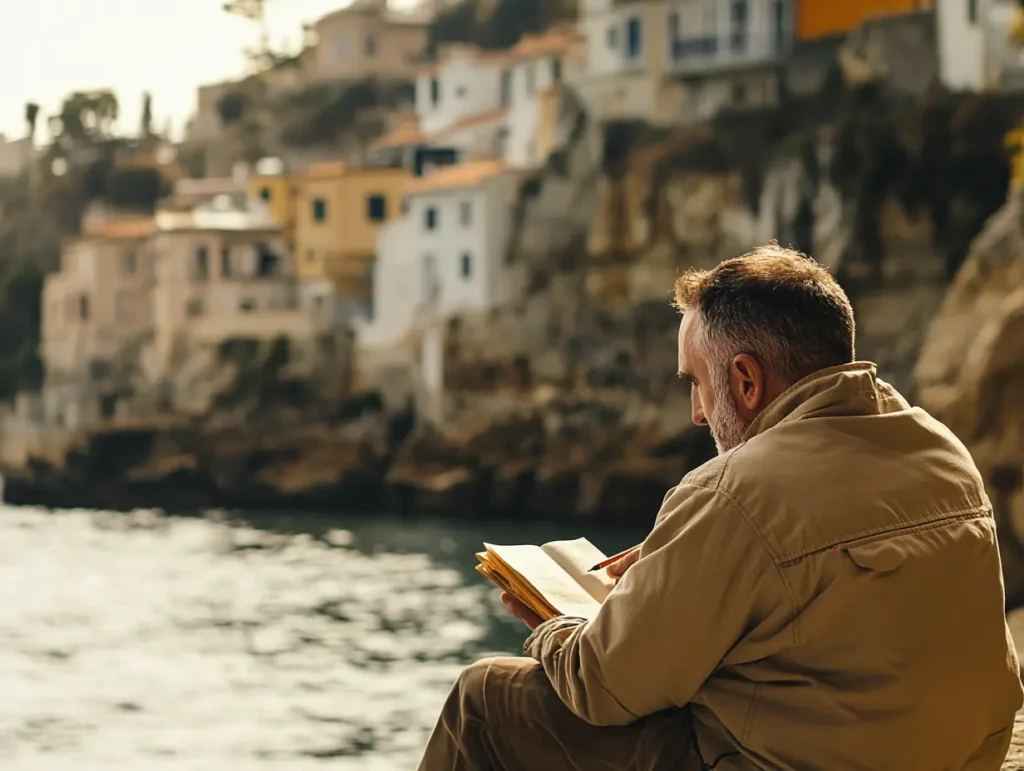
At dusk the water bulged. Near midnight, faint bubbles trailed in straight lines across the surface. Just before dawn, the gulls scattered, avoiding a particular patch above the shelf. He wrote it all down: dates, times, conditions.
The entries filled page after page, a quiet obsession no one else cared to understand. After a week, he was certain. Whatever it was, it surfaced regularly, almost by routine. That was no creature. That was discipline. Machinery.
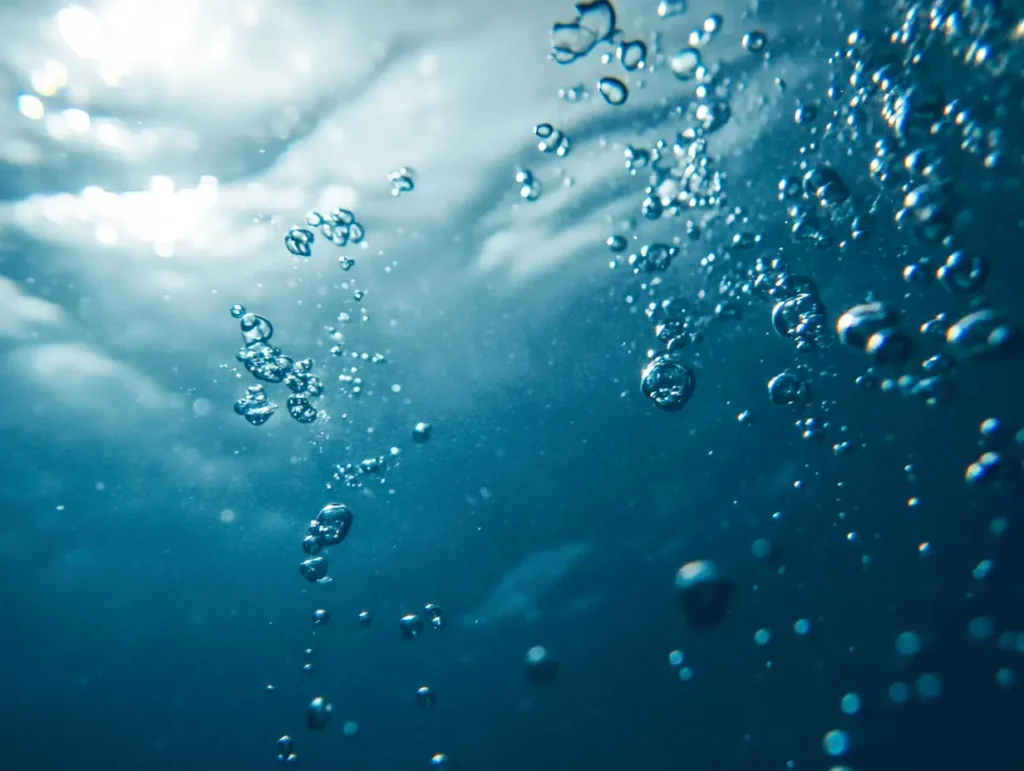
He brought his notebook to the café the next morning, slapping it down on the table so hard a few cups rattled. “I’ve been watching,” he announced, voice tight. “It comes up at near the same times every day. Dusk. Midnight. Dawn. It’s not random. It’s not wild. It’s scheduled.”
The room went silent for a moment, before the scoffing began. One man leaned back and snorted. “Scheduled? You think the sea keeps a watch in its pocket?” Another laughed. “He’s writing bedtime stories in a book now. Careful, Erik, the monster might read it and come knock.”
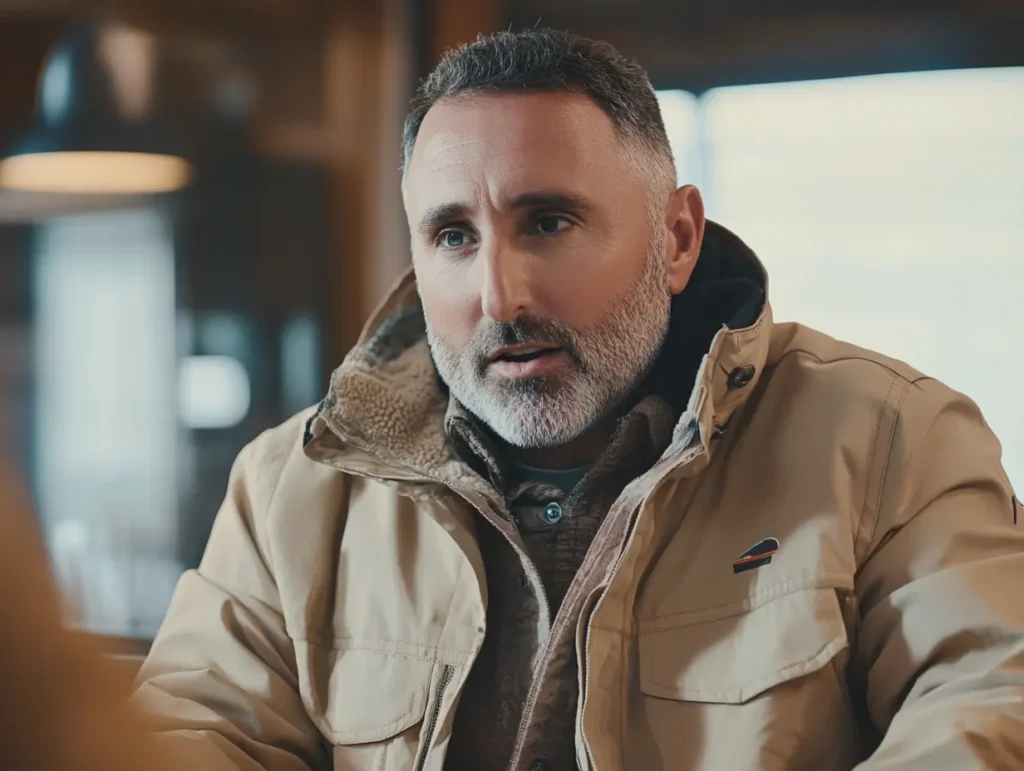
Even Marta shook her head. “You think you can tame fear with scribbles? It doesn’t matter how you dress it up. The sea takes who it wants, when it wants.” But Erik didn’t falter. He tapped the notebook with a calloused finger. “If it comes like this every time, then tonight you’ll see it for yourselves.
If I’m wrong, then laugh all you want. But if I’m right—” He let the sentence hang. The men muttered, trading looks. Some rolled their eyes, but others shifted uneasily. Finally, an older fisherman with gray stubble spoke up.
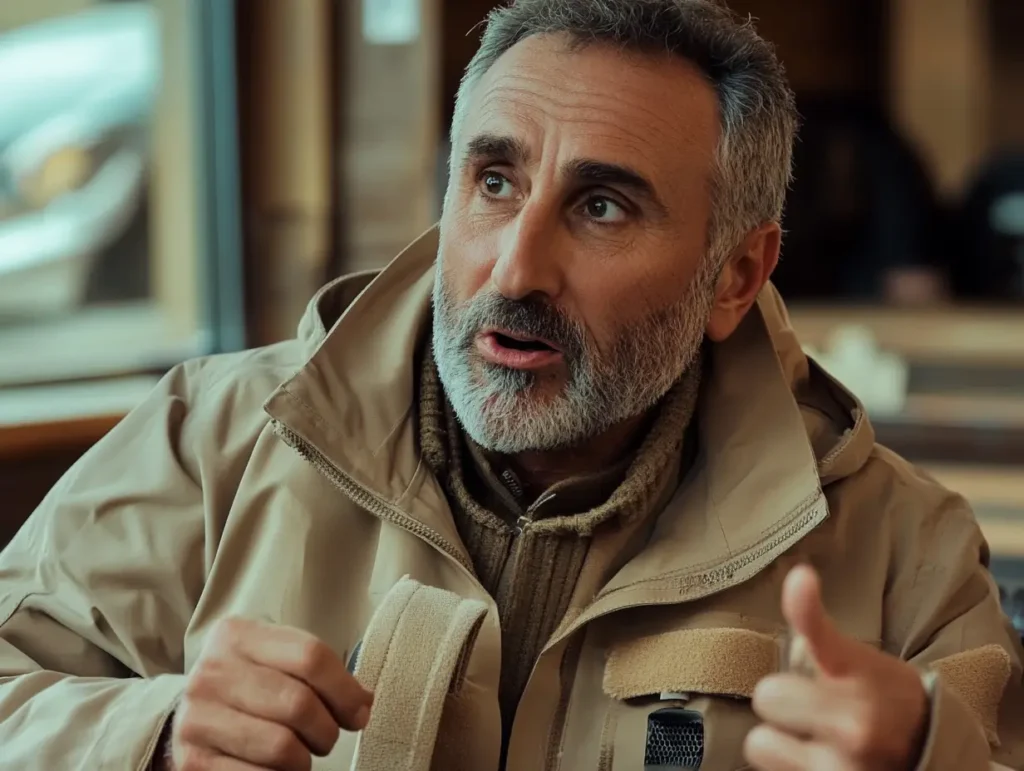
“What harm is there? We sit on the shore, we watch, and we prove him wrong. Then maybe he shuts up.” A low chuckle spread, half agreement, half derision. Someone else added, “Aye, let him embarrass himself proper. Better than listening to him strut.”
But a few nodded more seriously. Fear or not, curiosity was stronger. The rumor alone was enough to draw a crowd. If Erik was right, if something truly showed itself, none of them wanted to miss it.
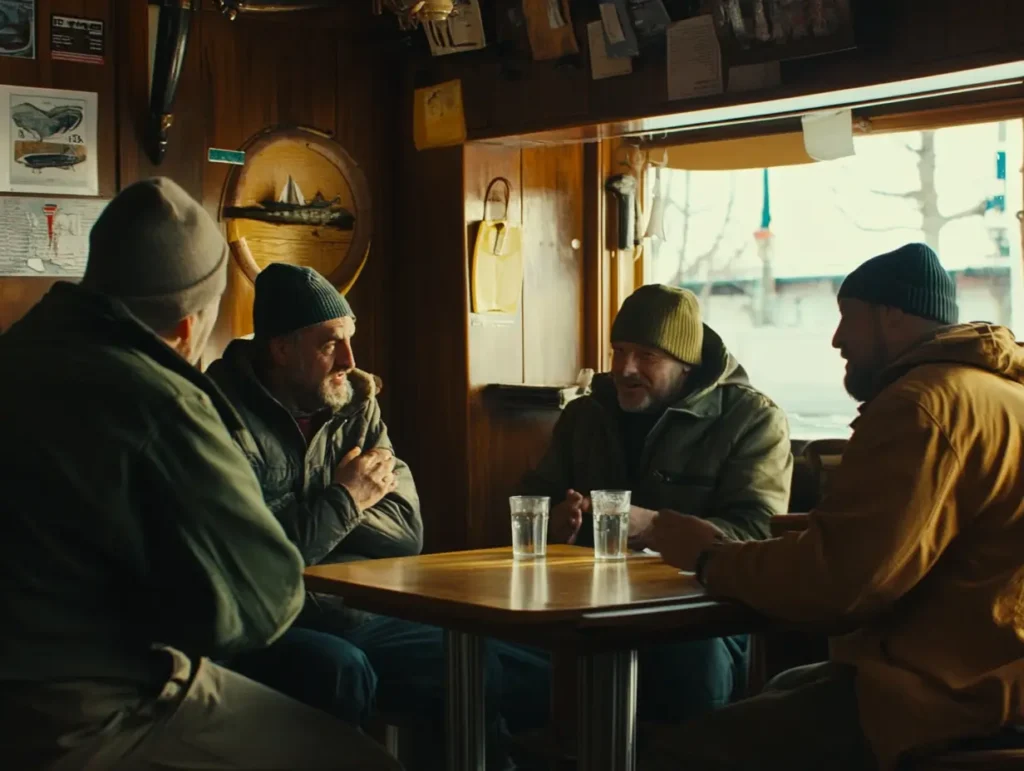
That evening, the entire village gathered by the bay. Some brought lanterns, their light casting jittery reflections across the water. Others stood back with arms folded, muttering that it was a waste of time. Children clung to their parents, wide-eyed, sensing the tension.
Erik stood at the front, notebook still in hand, though he no longer needed it. His voice was steady as he faced them. “It rises just after the bell. Watch the water.” Marta scoffed, arms crossed. “And when nothing comes?”

“Then I’ll be the fool,” Erik said simply. The air fell quiet. Even the gulls had gone. The tide pressed softly against the breakwater, then stilled. The only sound was the iron toll of the church bell, its notes carrying across the bay, deep and measured.
At first, nothing happened. The water lay flat, silver in the last light. A few men exchanged smirks. Someone muttered, “Waste of a night.” Marta folded her arms tighter, lips already curling in victory.
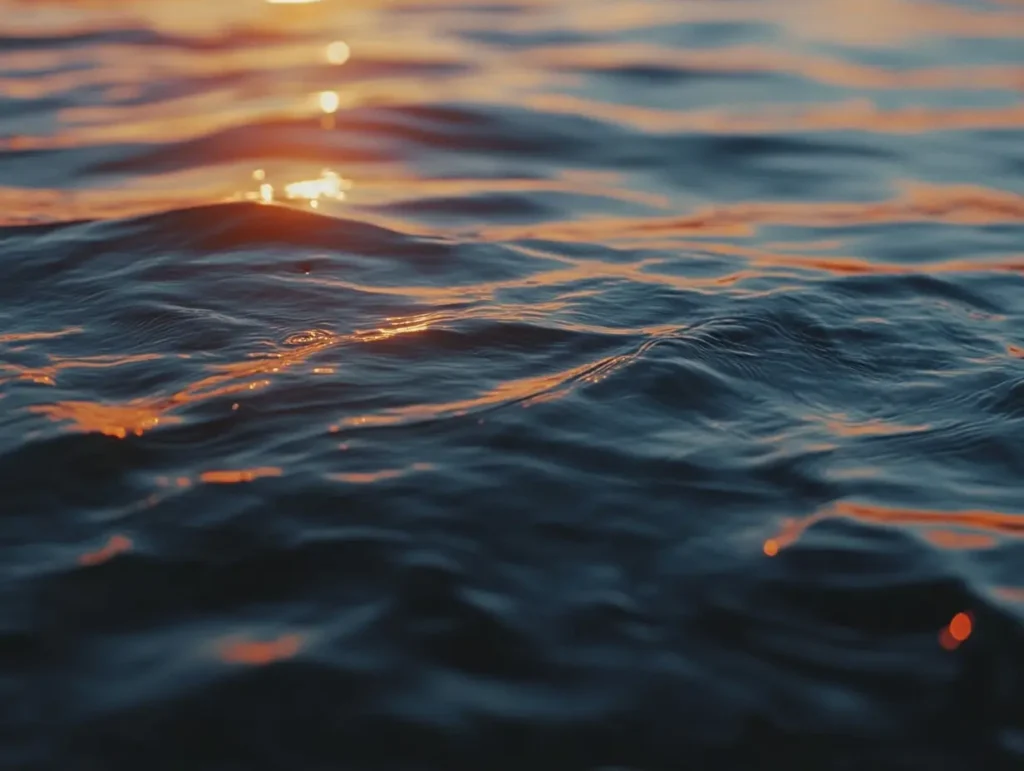
Erik’s jaw clenched. Heat flushed his face. He flipped through his notebook as though the pages might change, but the times were there, exact. Had he been wrong all along? Was he just a fool scribbling at the edge of the sea? Murmurs rose as people began to shift, some turning as though ready to head back.
Then the sound came. Low at first, a thrumming vibration that carried through the sand into their shoes, rising until it seemed to rattle the very air. The crowd froze, heads snapping back toward the water. A tremor rolled across the bay, and then the surface swelled.
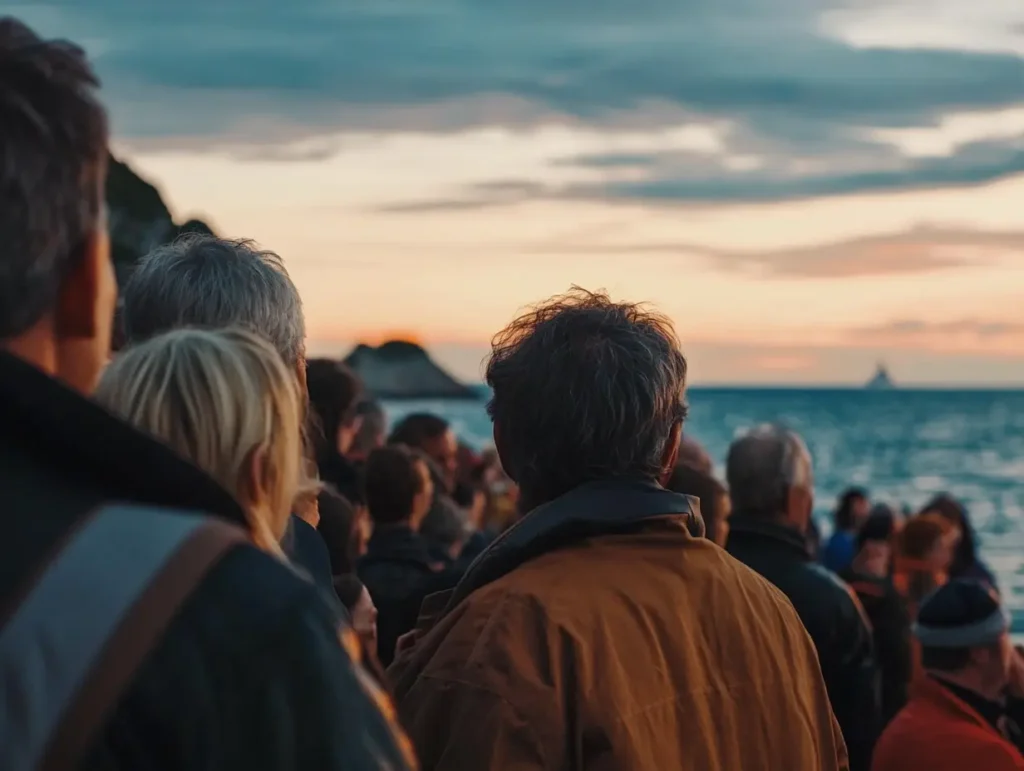
It rose slow and deliberate, spreading wide, higher and higher until it looked like the back of some enormous beast. Black, glossy, catching the last slivers of daylight in sharp gleams along its ridges. Gasps tore through the crowd. Mothers clutched children to their skirts. A man cursed under his breath.
Erik’s breath faltered. For a heartbeat he doubted everything, the notes, the patterns, his certainty. Maybe it was a creature. Maybe they had all been right, and he had only led them to their doom. Then the truth rose.
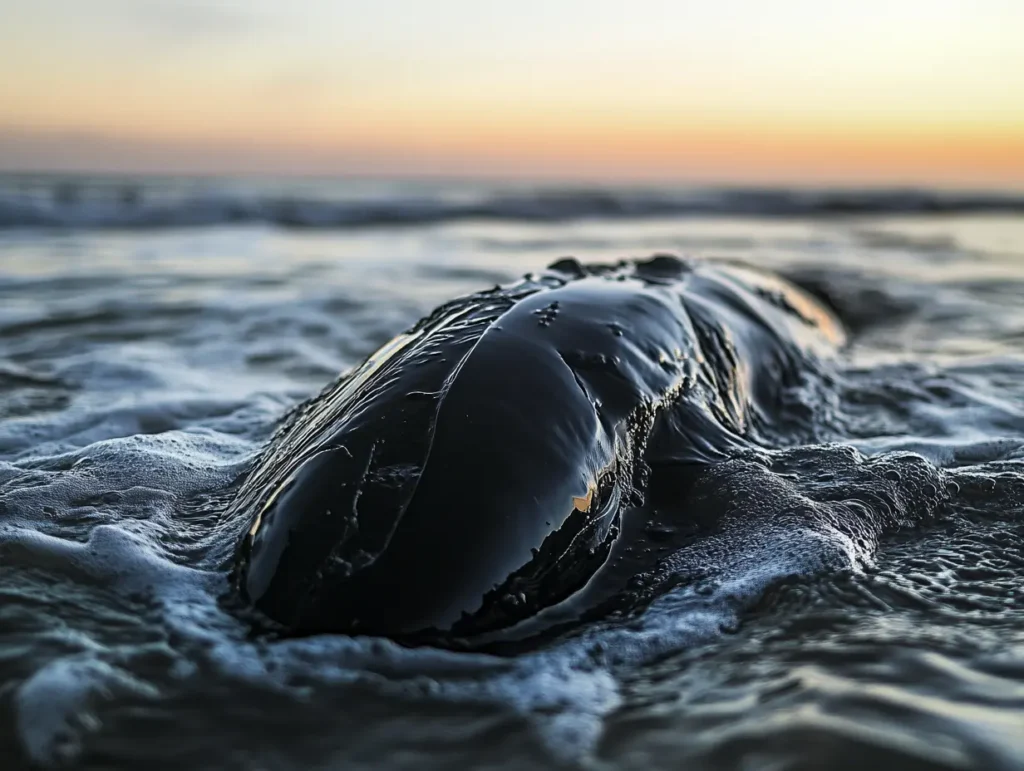
Steel, not scales. Edges too clean, too perfect. A black hull broke the surface, water streaming off in sheets. A tower pushed upward, squared and sharp, antennae glinting. Lights flickered faintly along its side. The villagers froze, caught between terror and disbelief.
A hatch swung open. Two figures climbed out, silhouetted against the dim sky. They weren’t monsters but men, their uniforms dark, their posture stiff. One raised a hand, gave a small wave toward the shore; almost apologetic, as though to say they hadn’t meant to be seen. Military, Erik realized. Foreign.

The crowd went still. For a heartbeat no one moved, no one spoke. Then whispers spread: submarine… machine… not a monster. Marta pressed her apron to her chest, eyes wide, but said nothing.
The two men vanished below. The hatch clanged shut, and the vessel sank again, sliding beneath the surface until the water smoothed flat. In less than a minute, it was gone. Silence held the crowd, broken only by the hiss of waves on the sand. Finally, Erik turned to them. His voice carried, calm and steady. “Not a monster. A machine. Always was.”

Some still shook their heads, muttering, unwilling to let go of the myth they had fed with fear. Others simply stared at the water, faces pale, as if struggling to accept that men had built something so vast, so hidden, that it could haunt their bay without notice.
The children clung tighter to their parents, wide-eyed, as though the sea had suddenly become stranger than it had ever been. “Why weren’t we warned?” someone muttered from the back of the crowd. Another echoed it louder. Murmurs spread, frustration now mixing with fear. But no answer came.

By the next morning, the news had spread beyond their island. Reporters covered the story: a foreign submarine surfacing without clearance, drifting too close to a fishing village. Analysts on television argued about miscommunication, about exercises in the wrong waters, about treaties and apologies.
It became a minor geopolitical storm, a headline that made their tiny community suddenly visible on the world stage. But none of that mattered in the moment. On the shore that night, all that remained was the memory of the black hull rising like a leviathan, and the uneasy truth that the village had not been cursed by some ancient sea spirit, but brushed against the hidden games of nations.
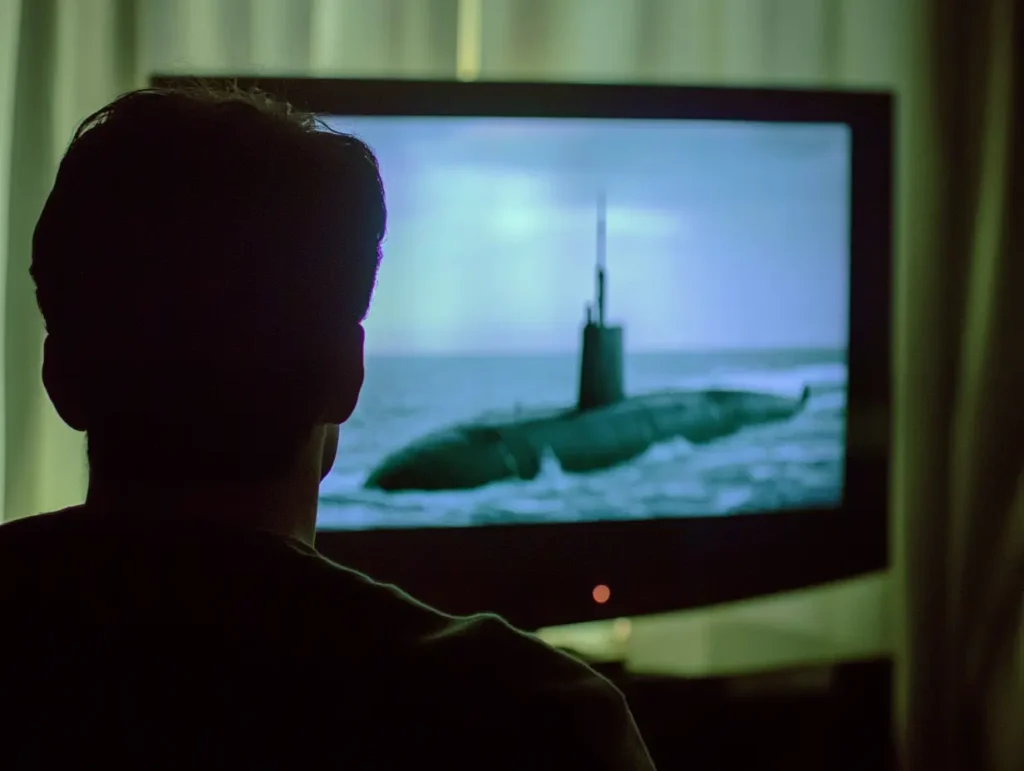
Erik lingered long after the others left. Vindication warmed him, but unease lingered deeper. The sea had always been dangerous, but it had been wild, natural, something he could understand. Now he knew better. There were machines beneath it, bigger than any whale, silent until they chose not to be. And that, he thought grimly, was its own kind of monster.
